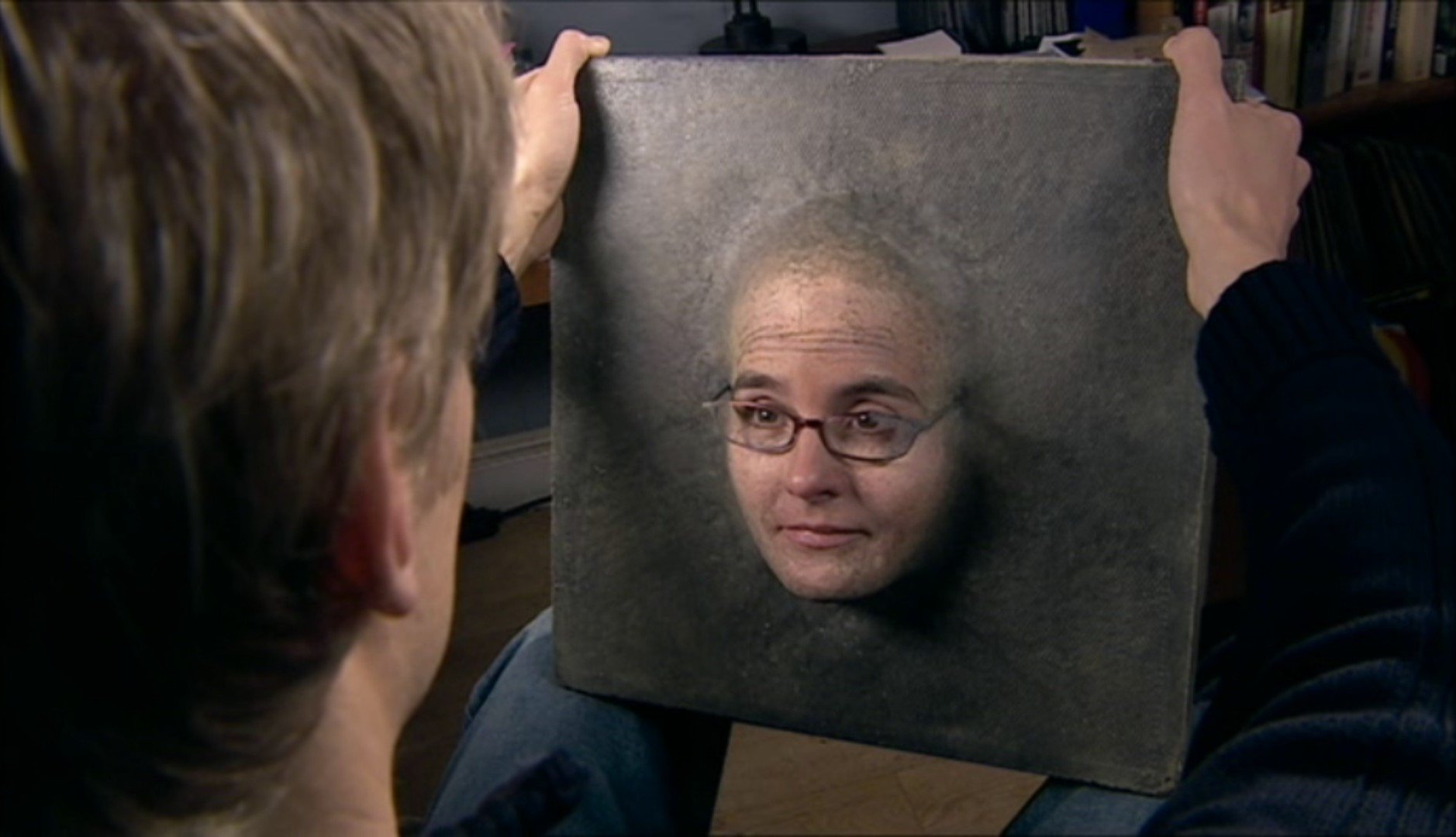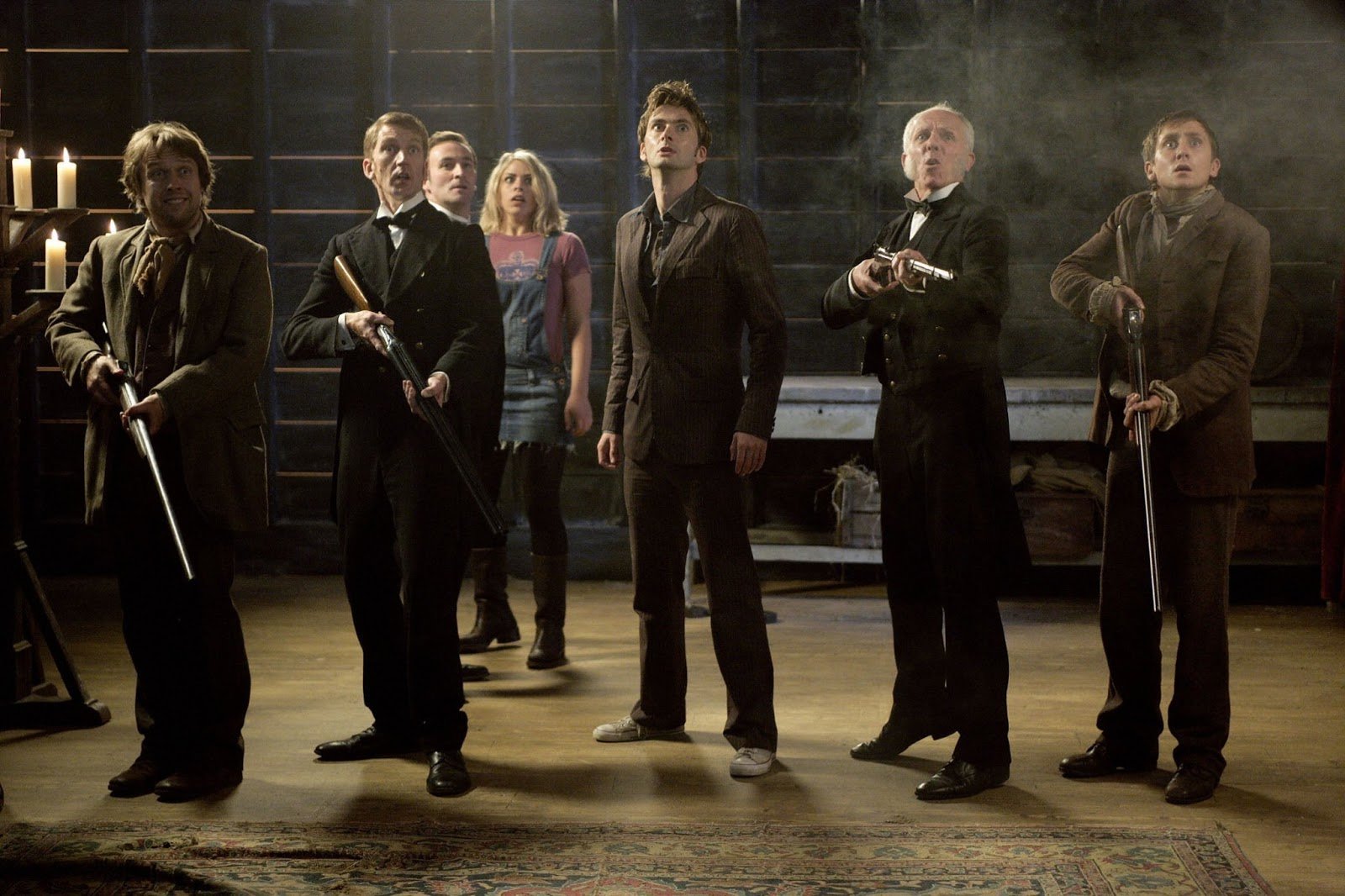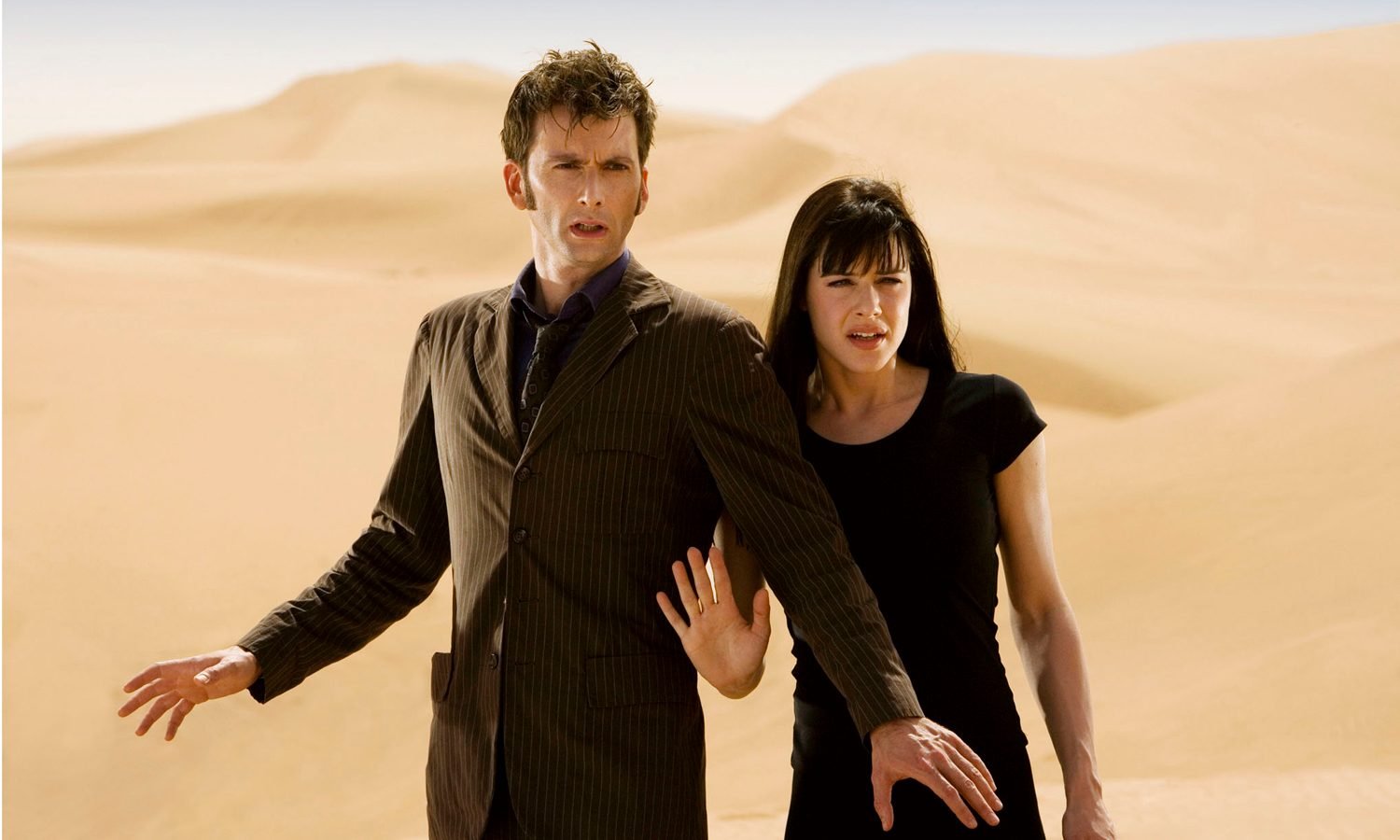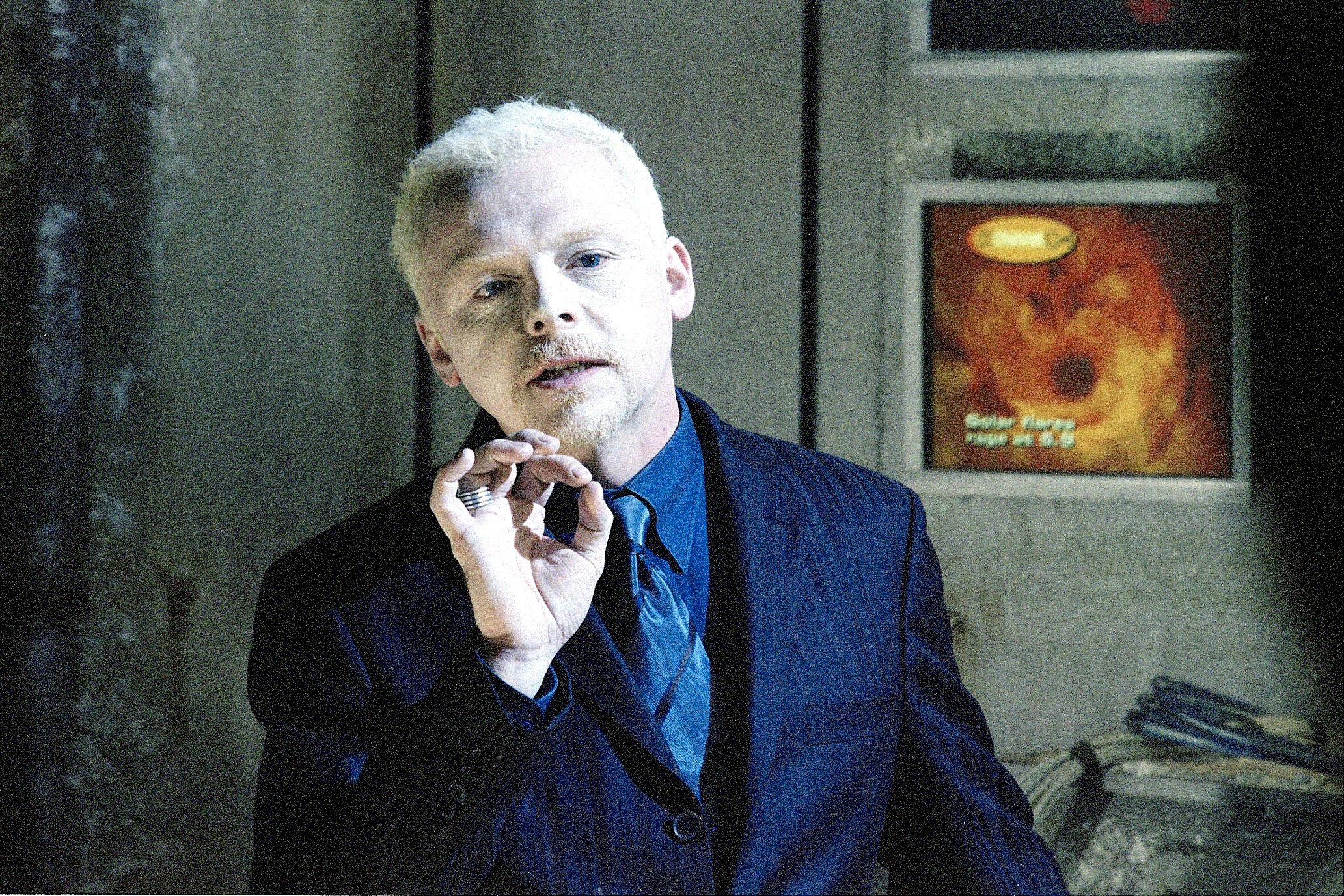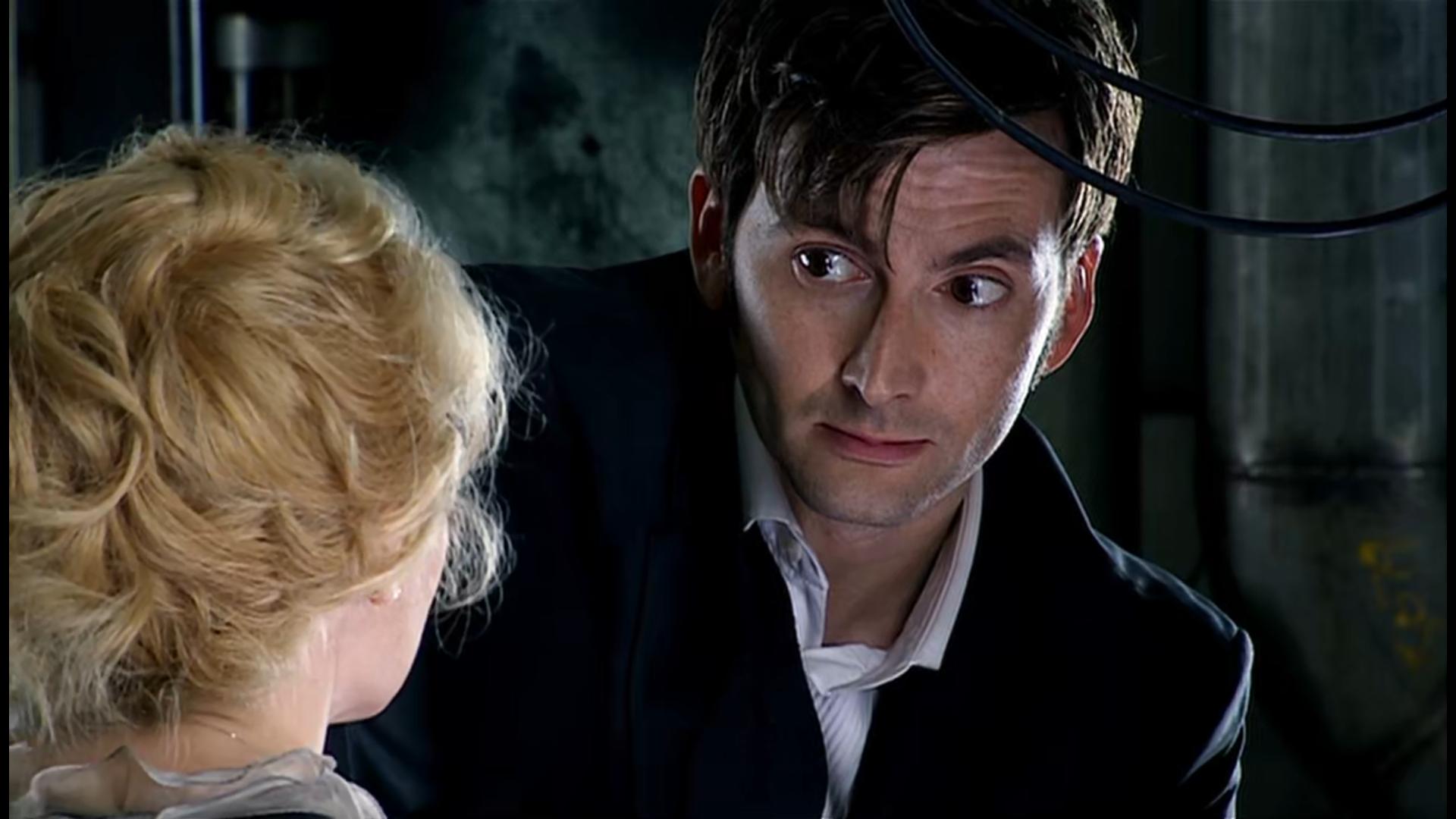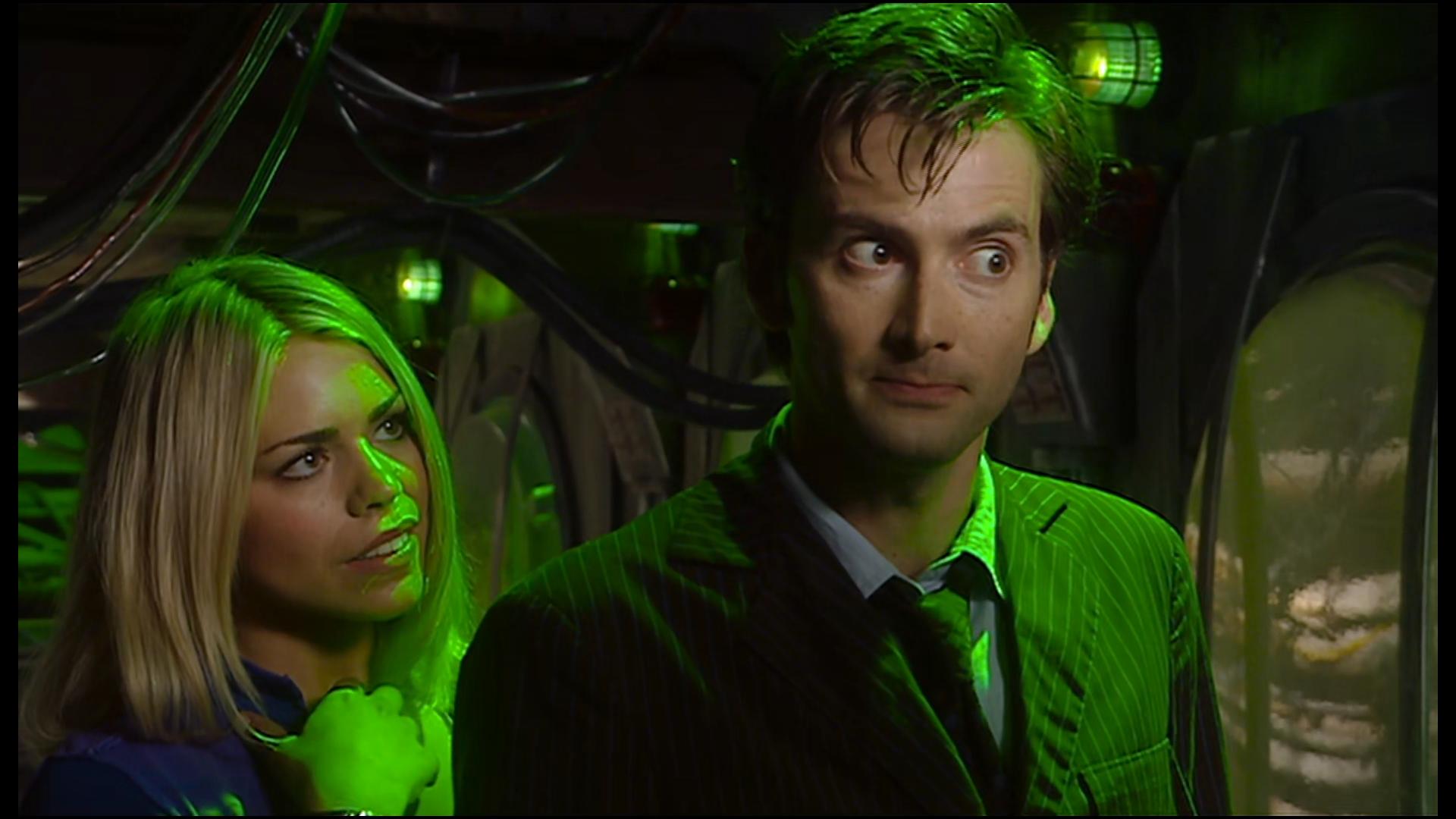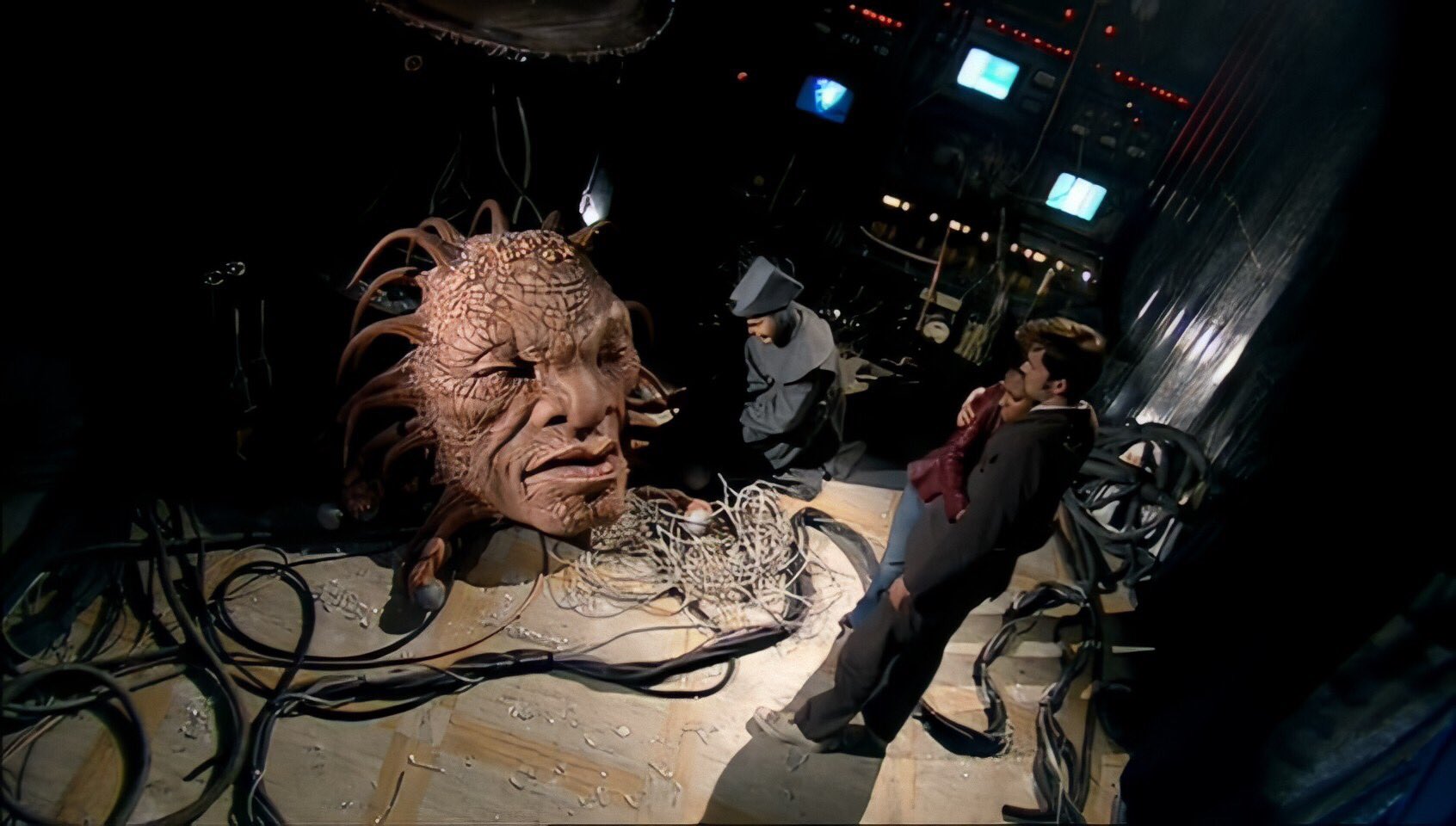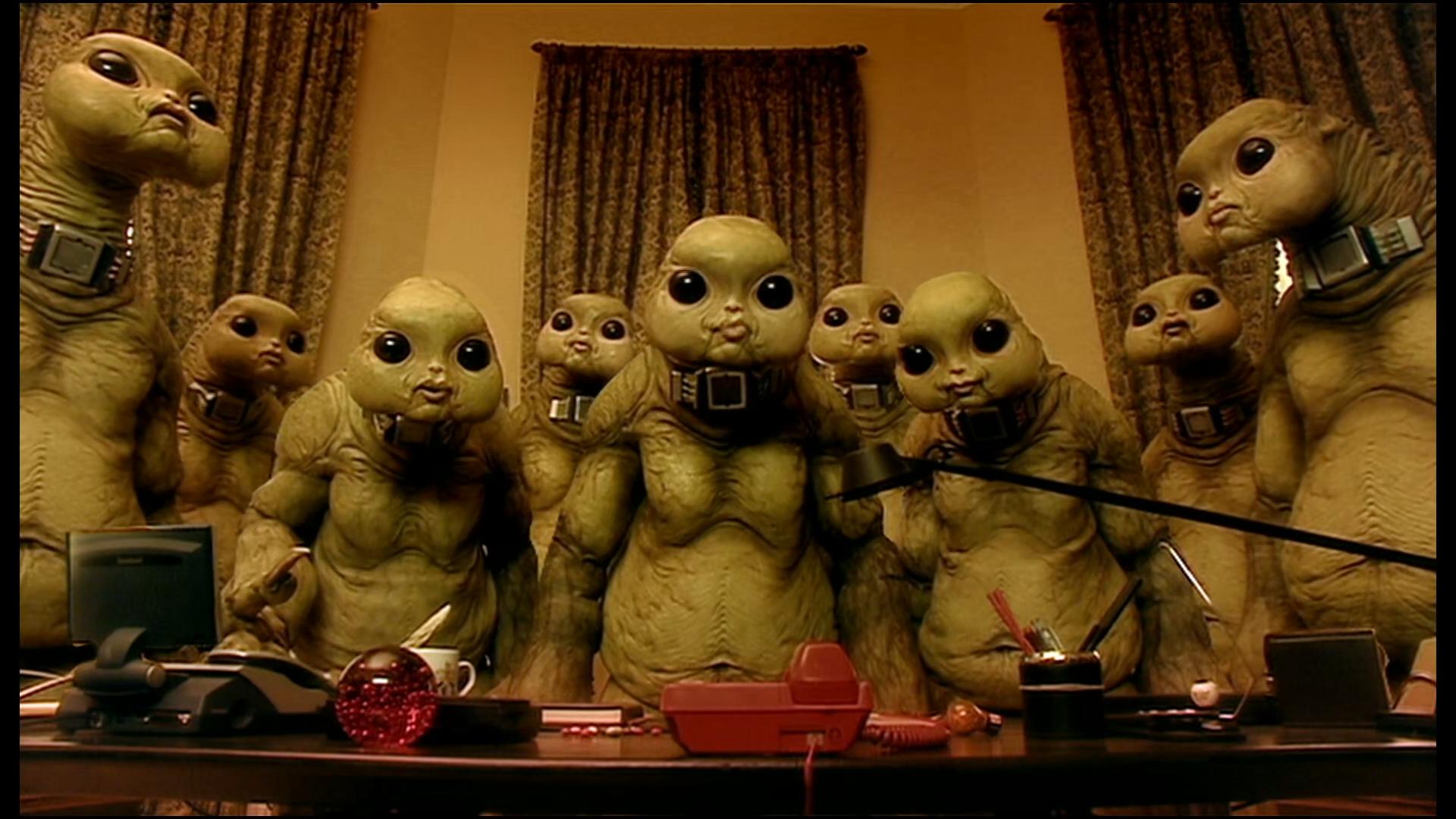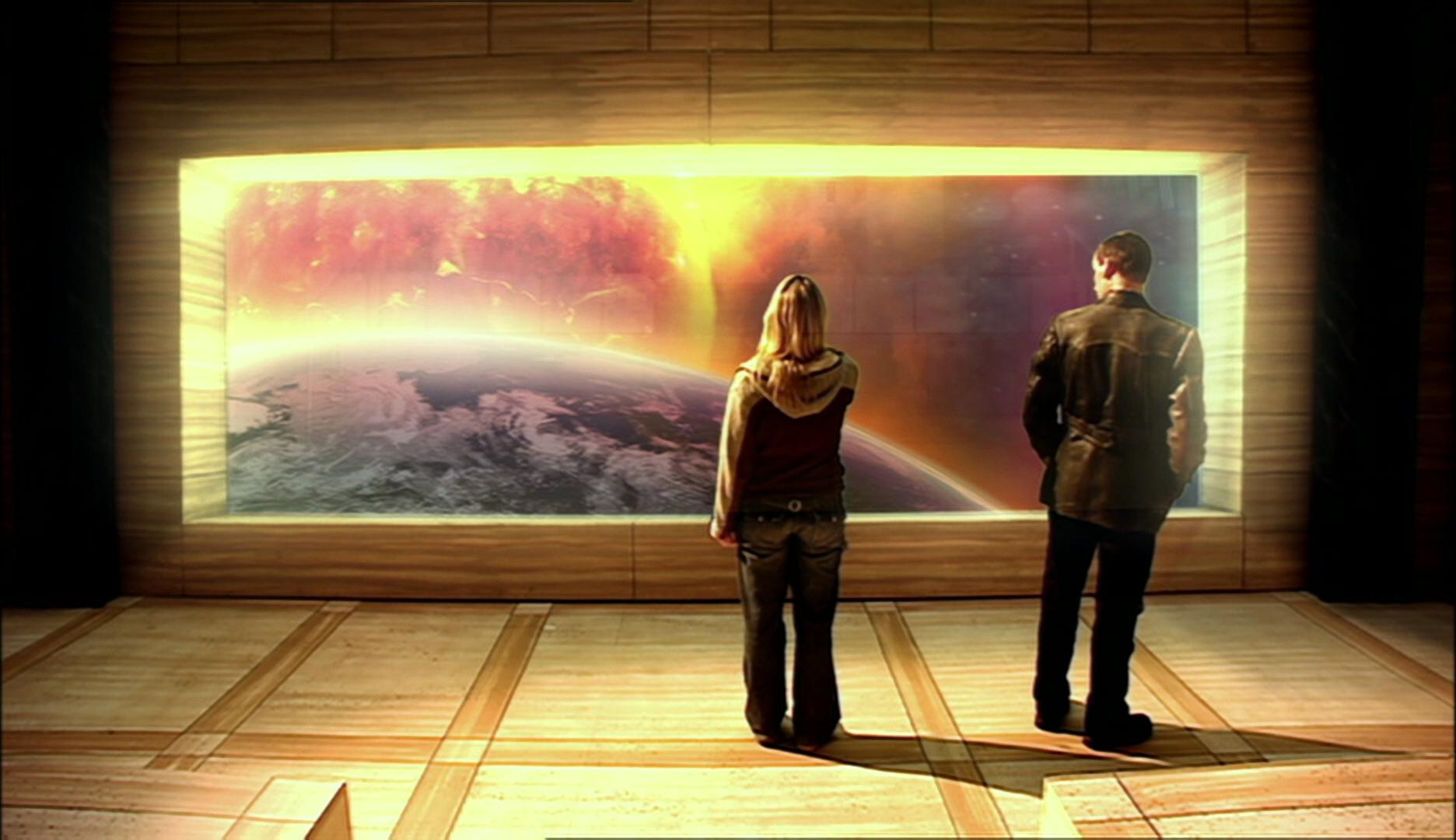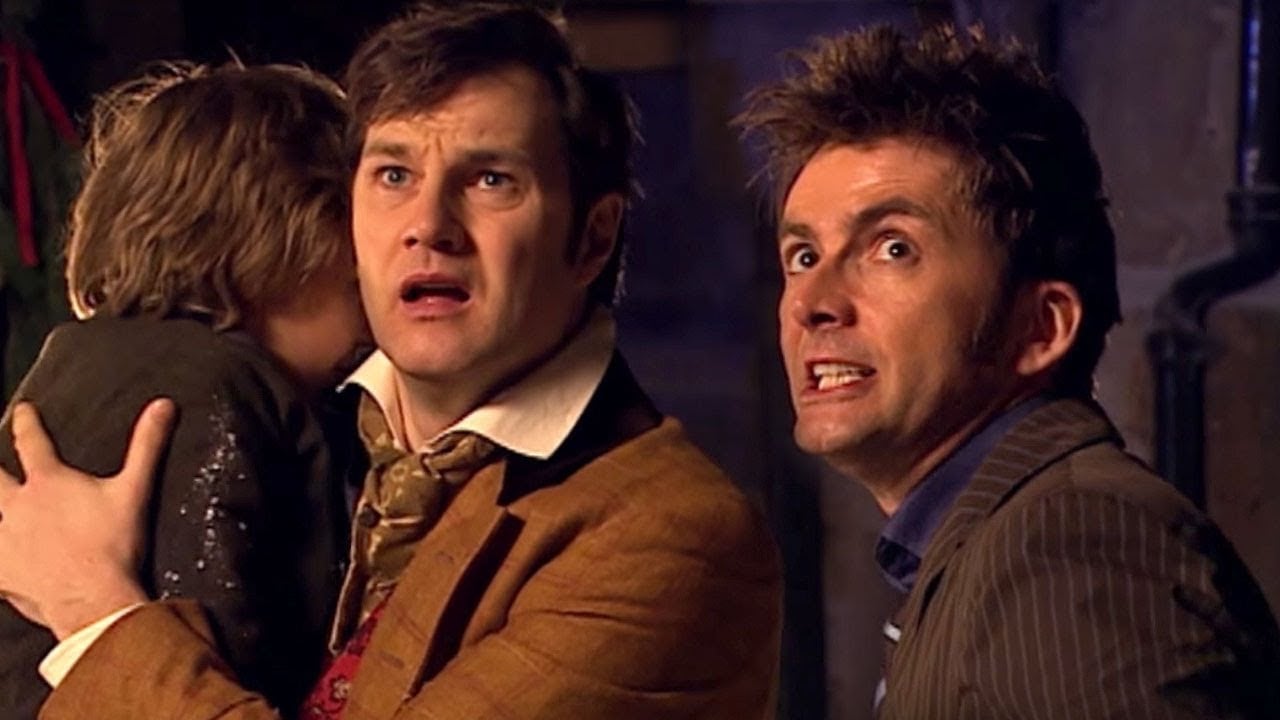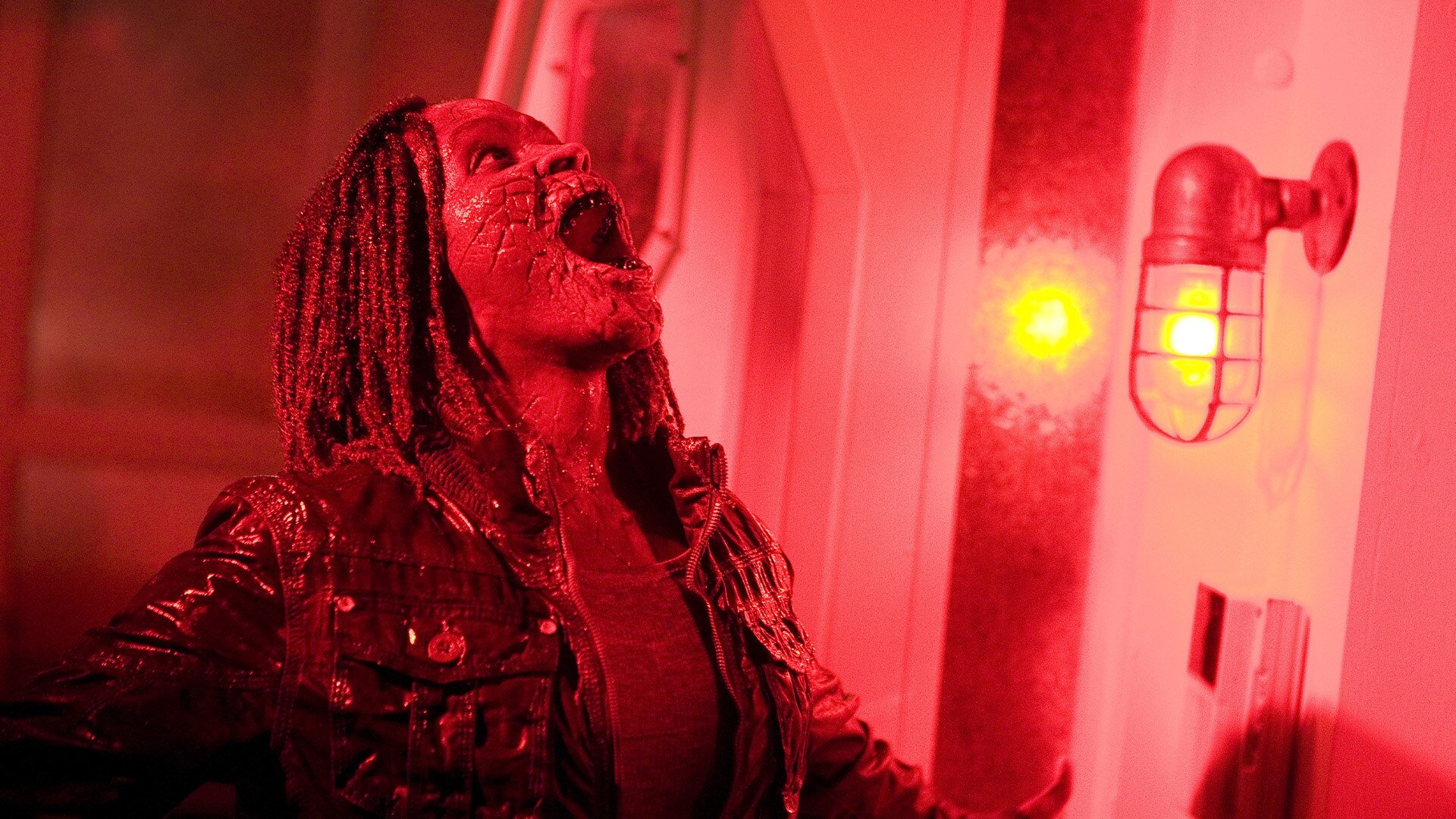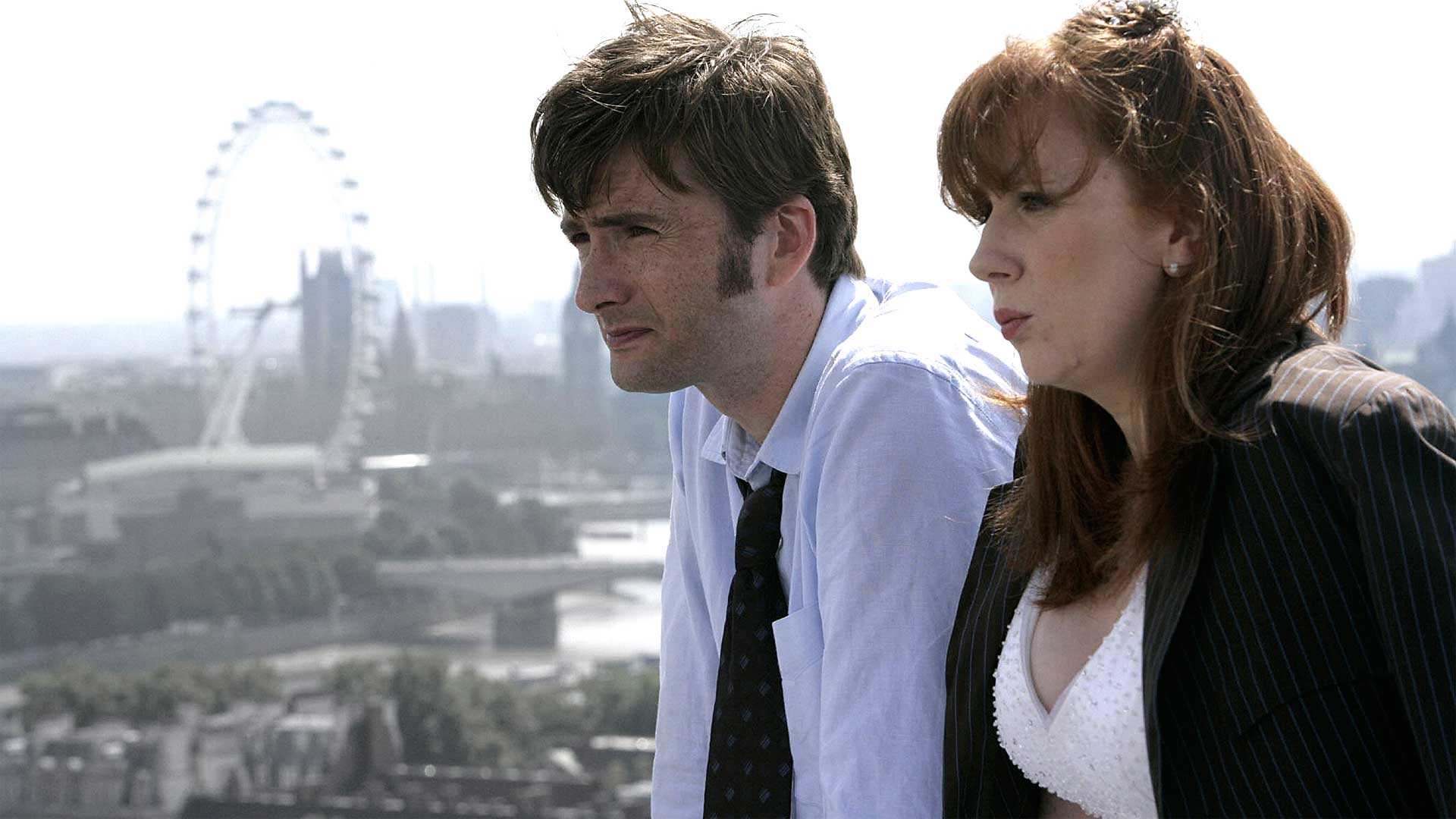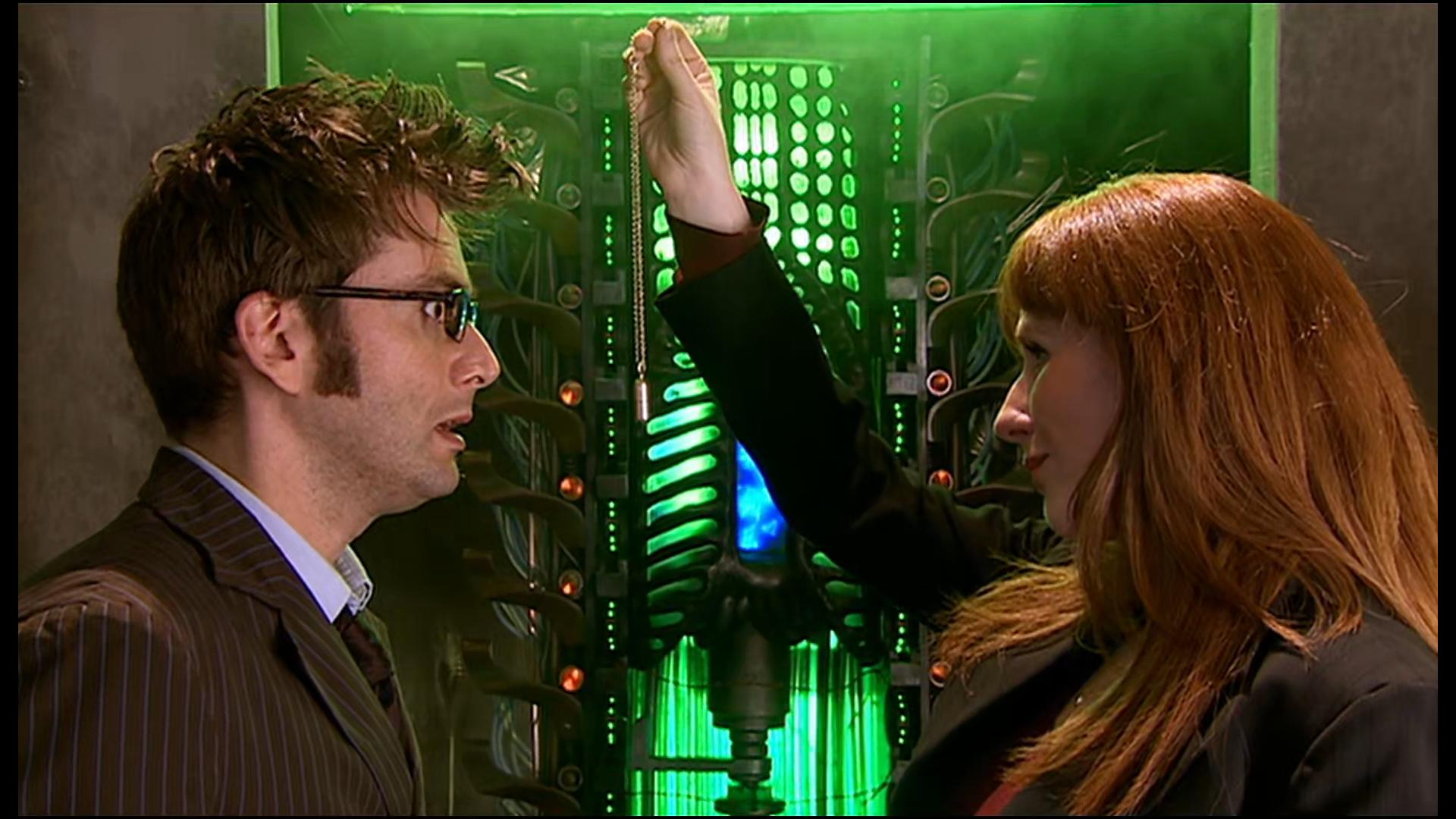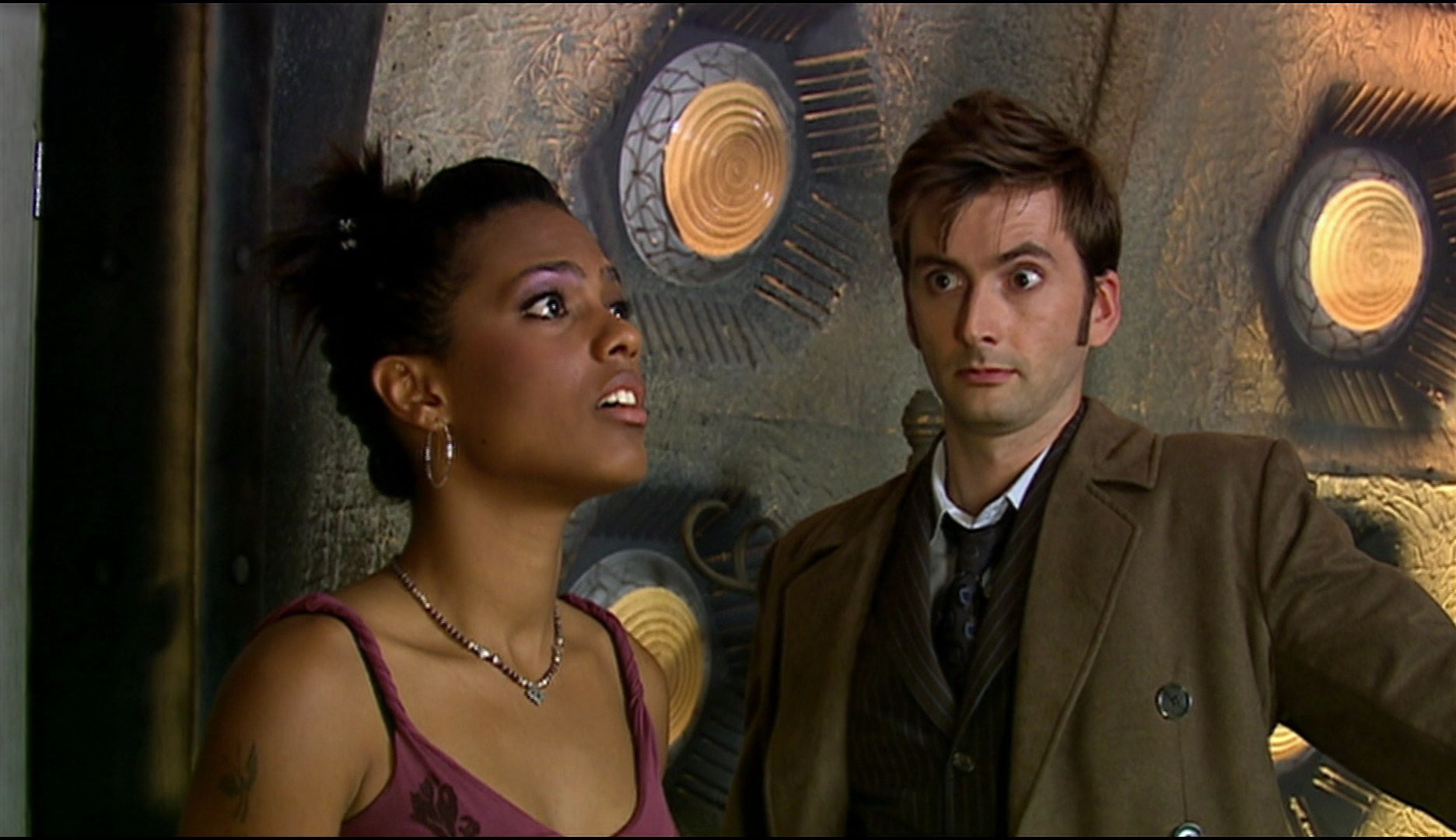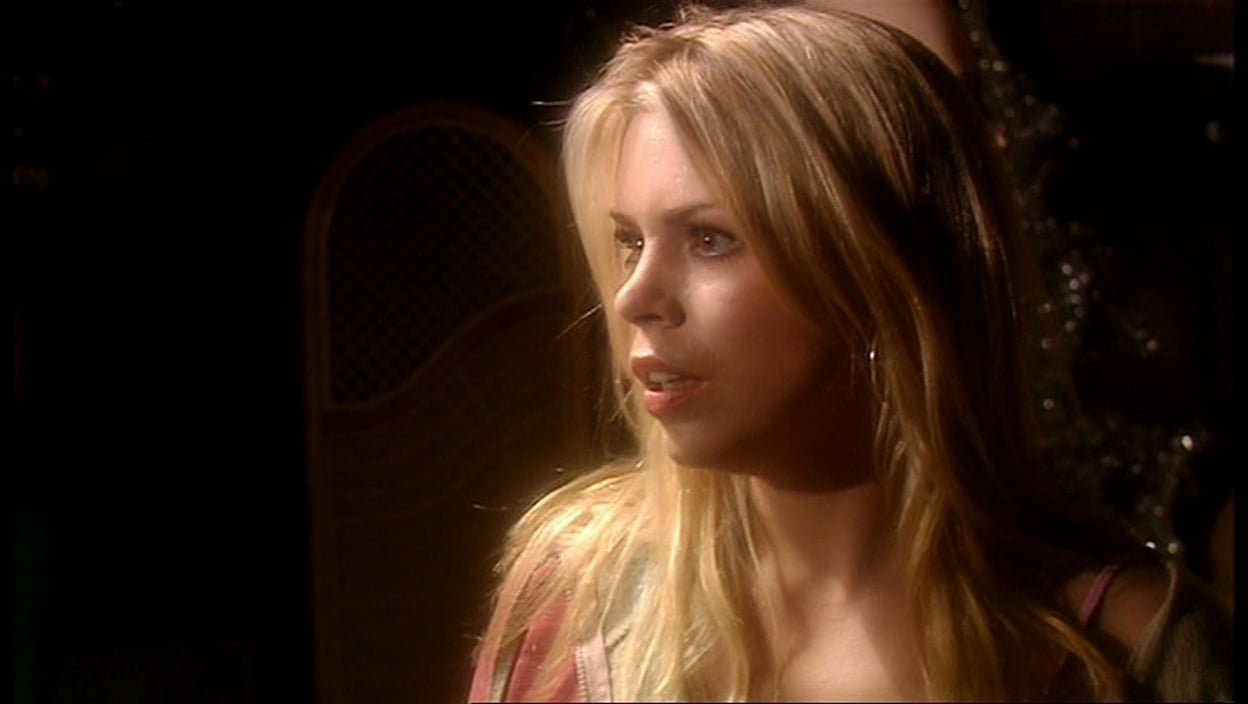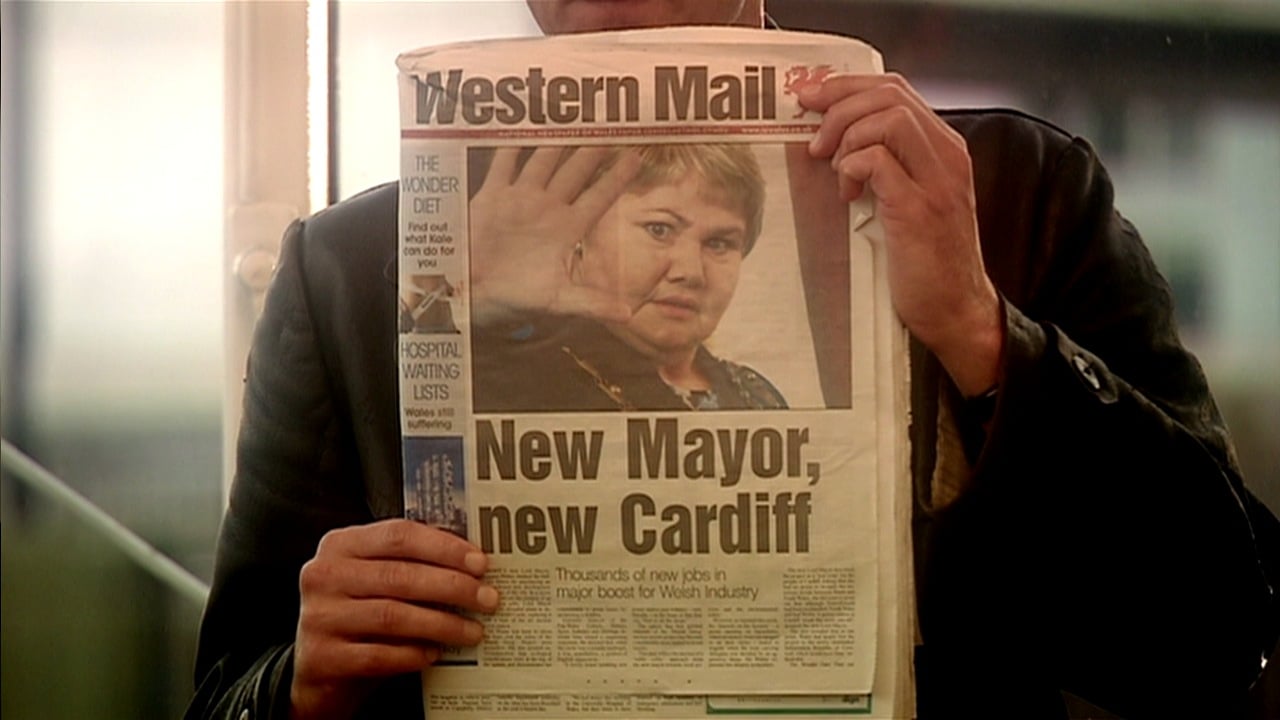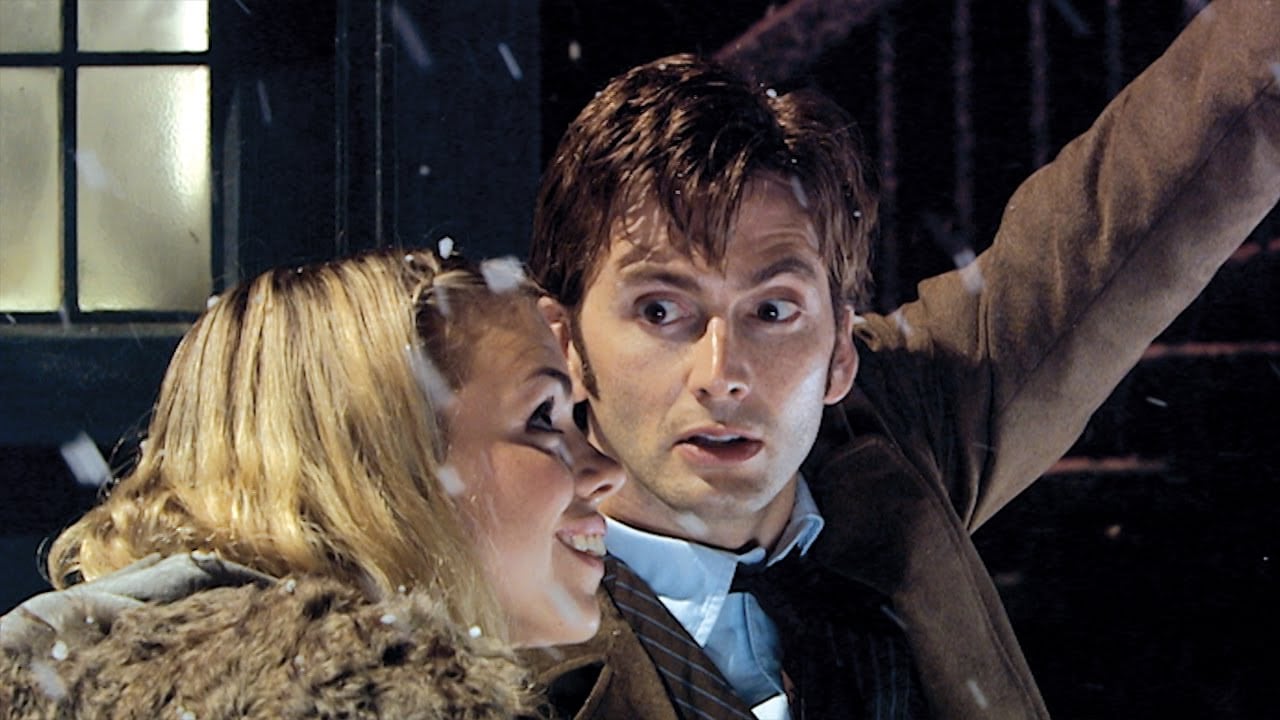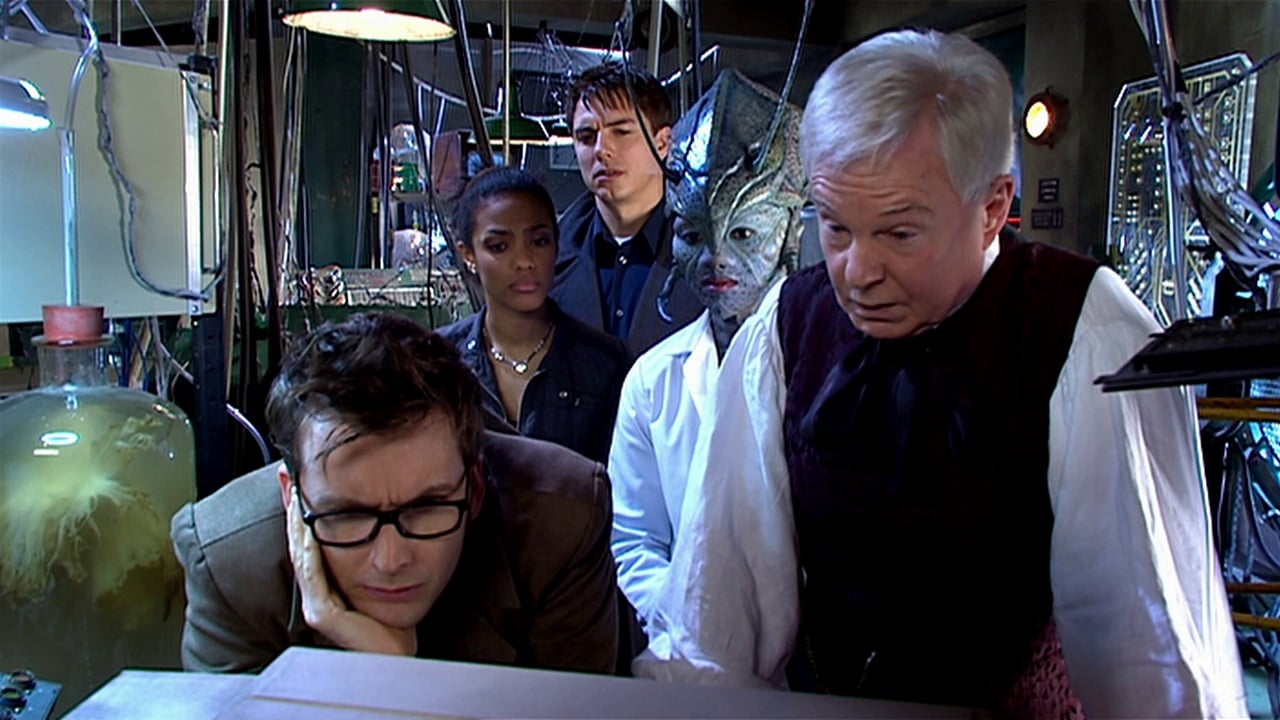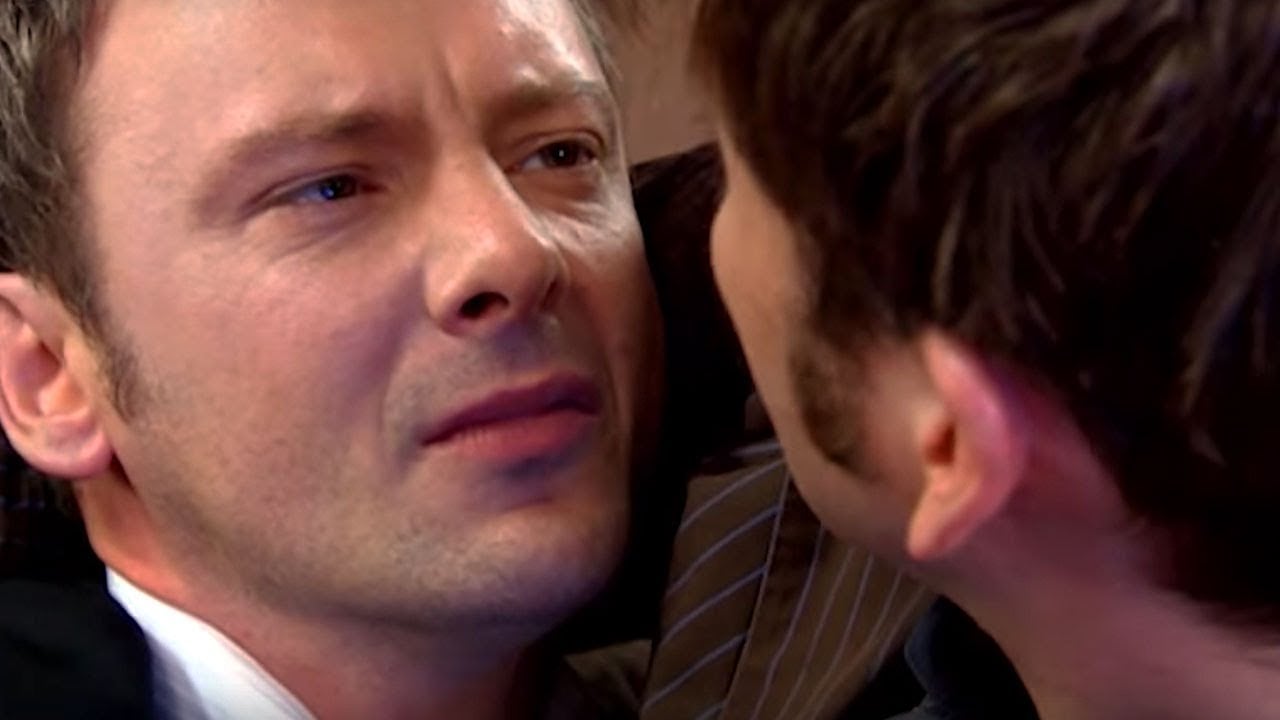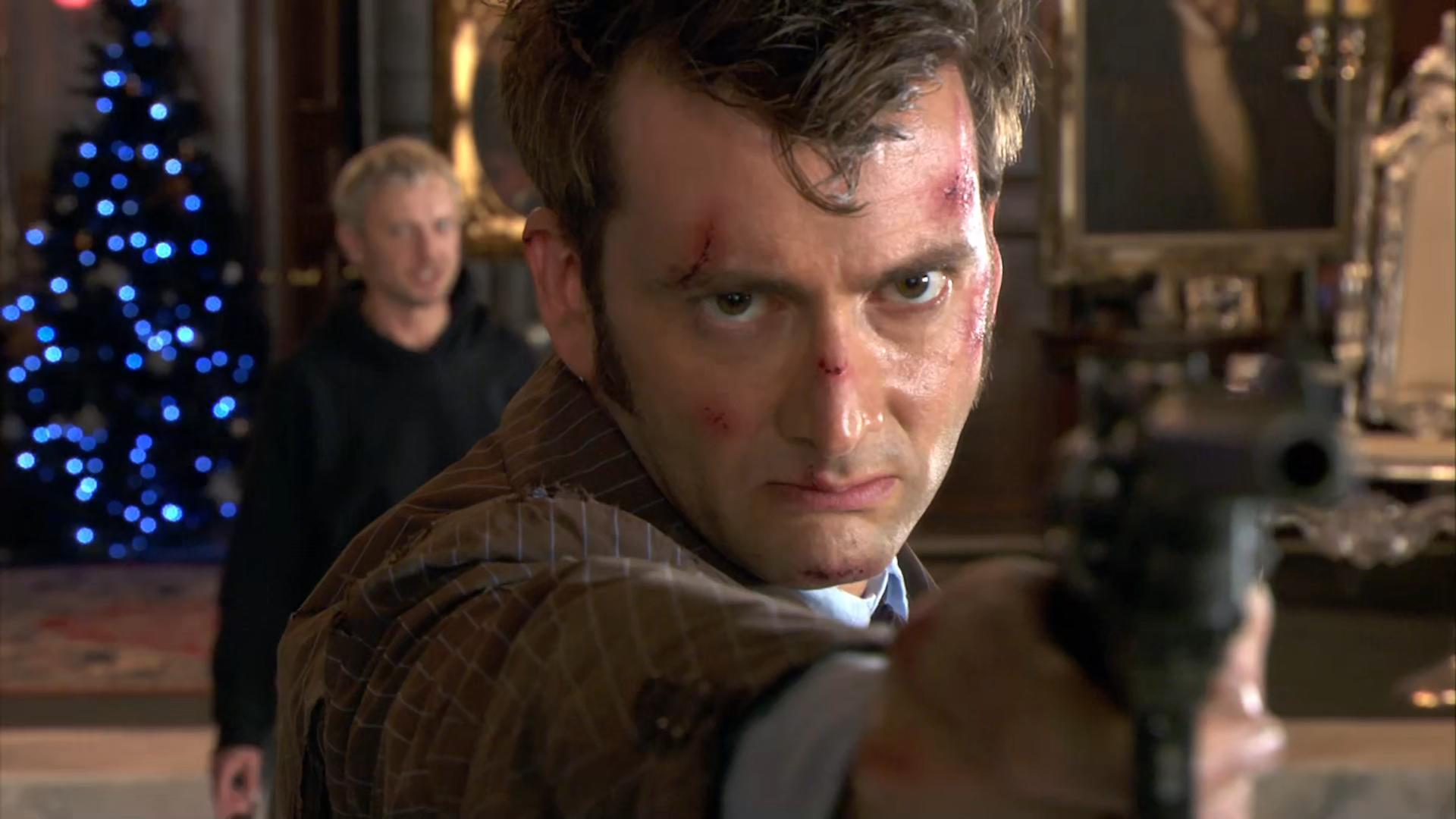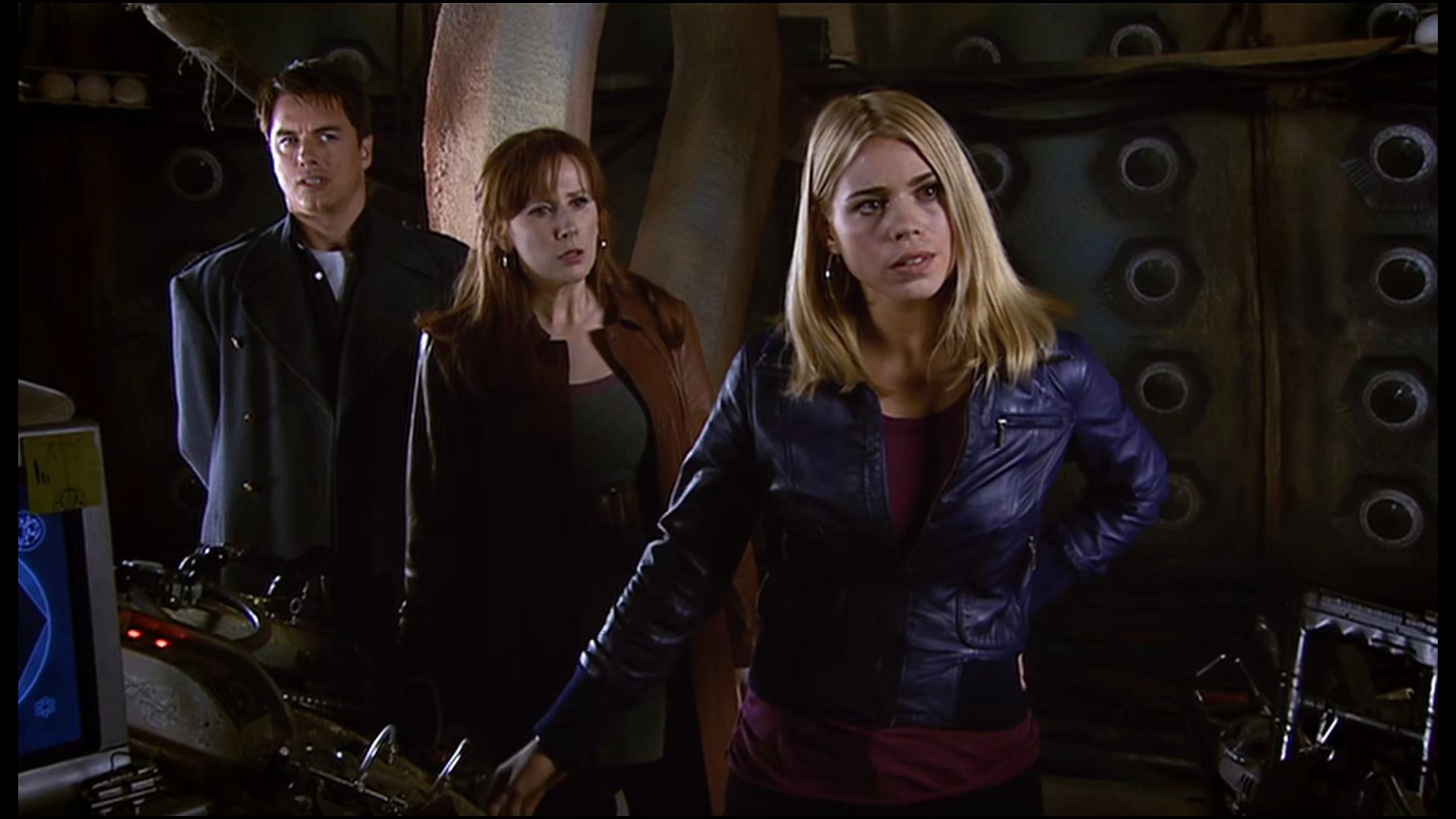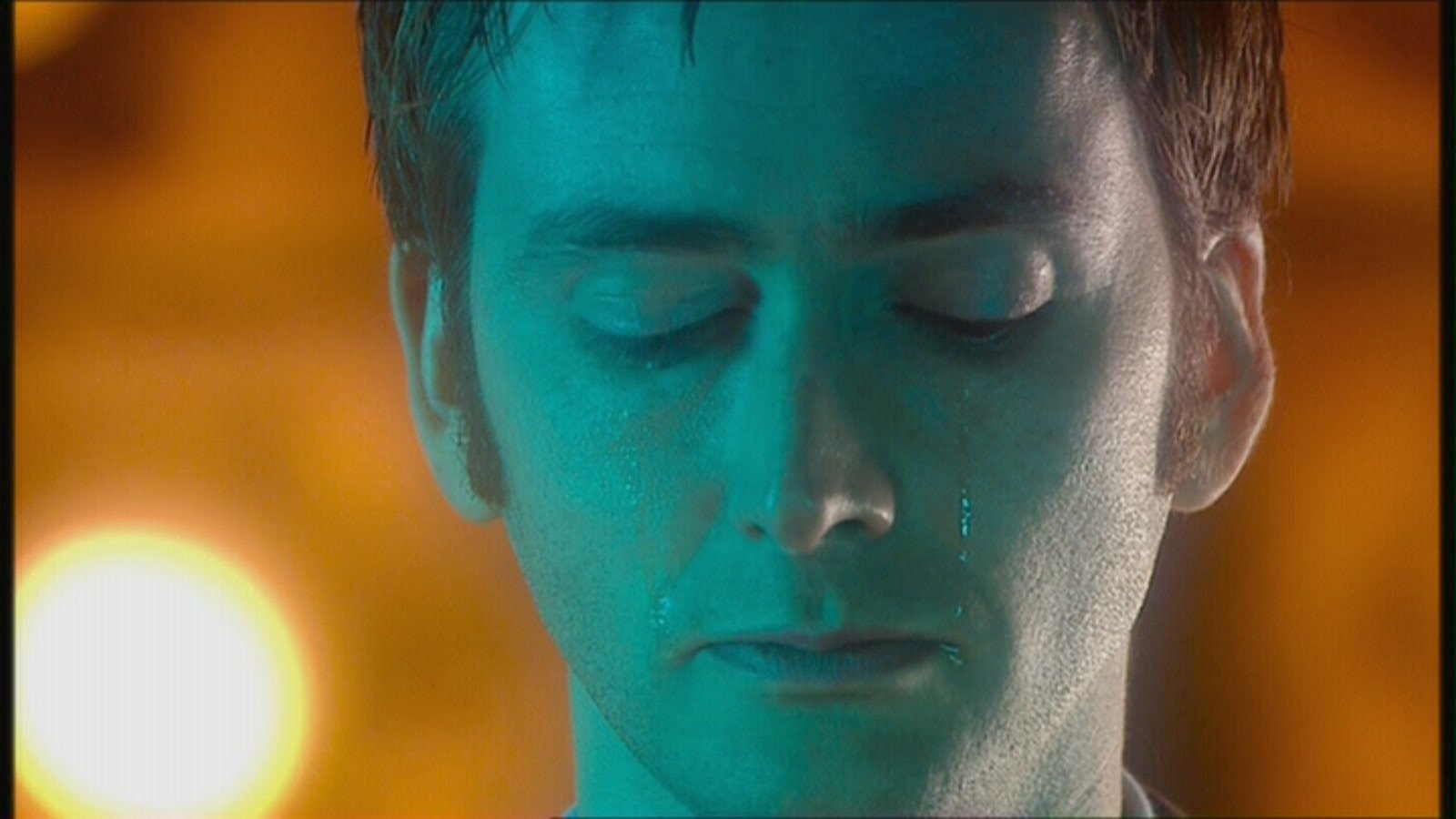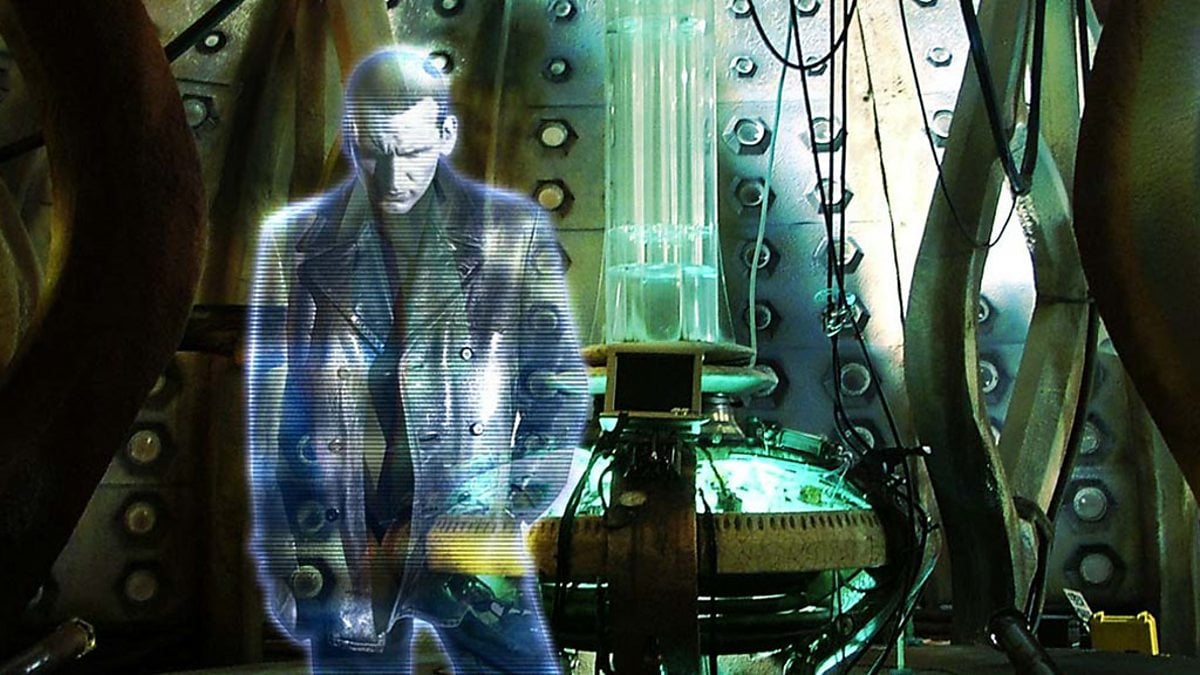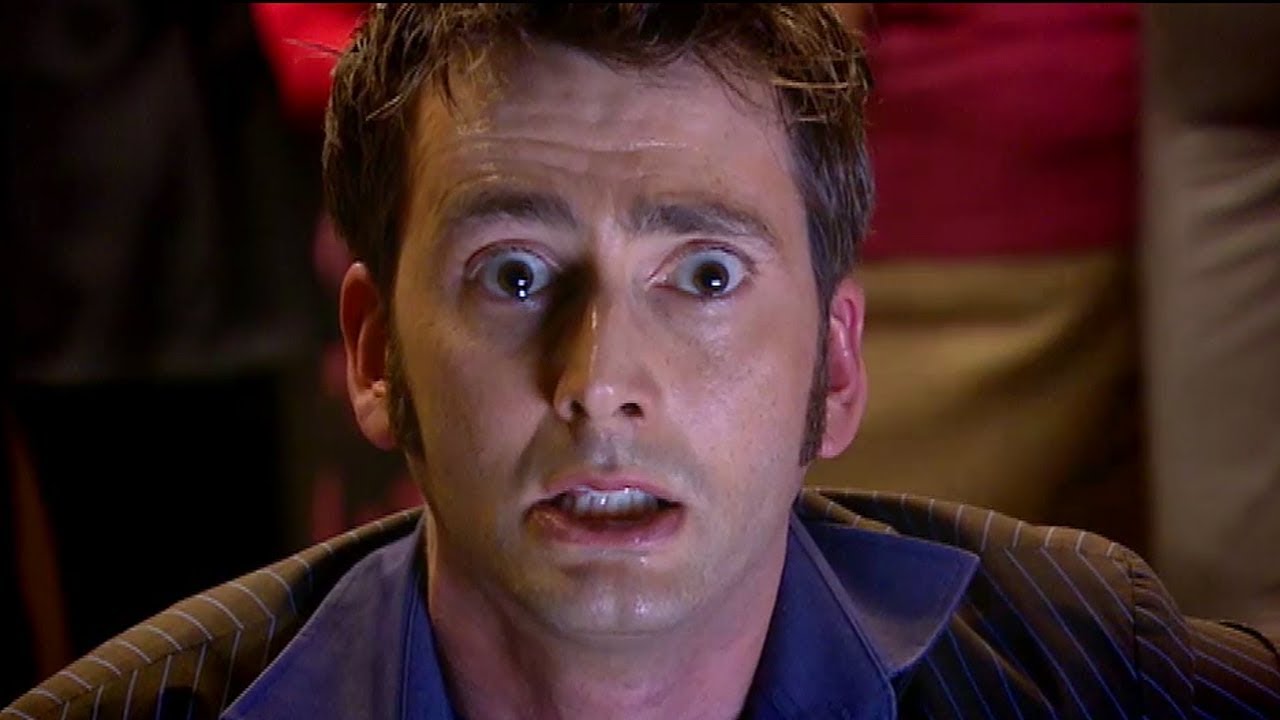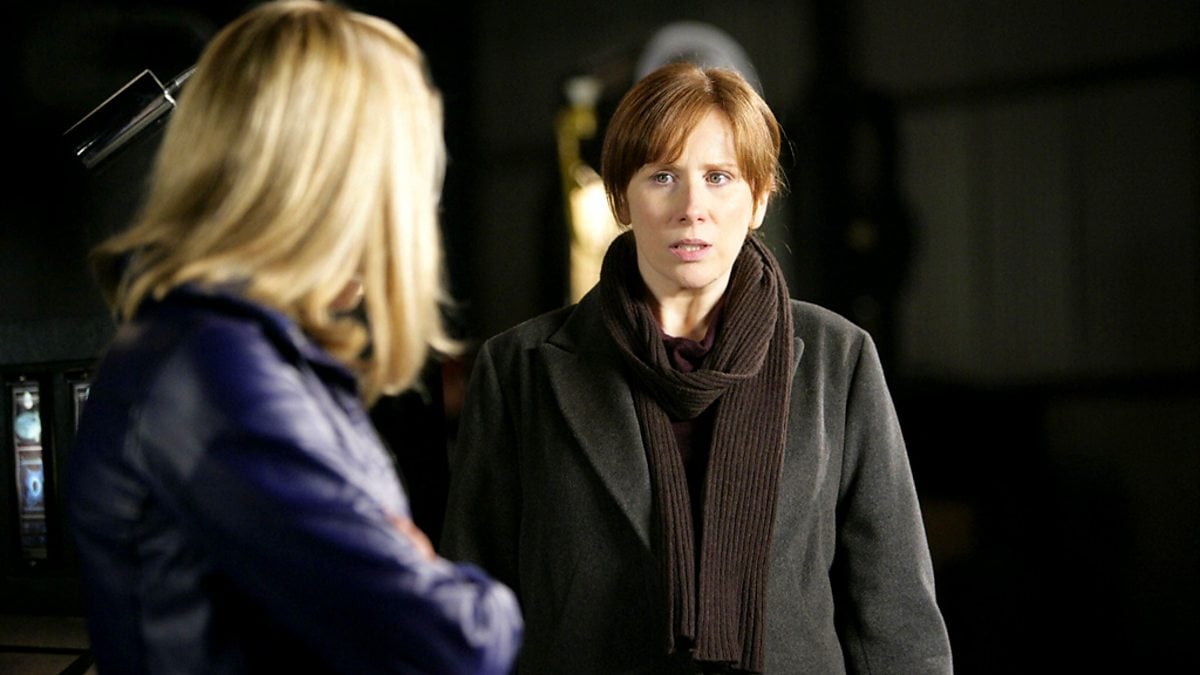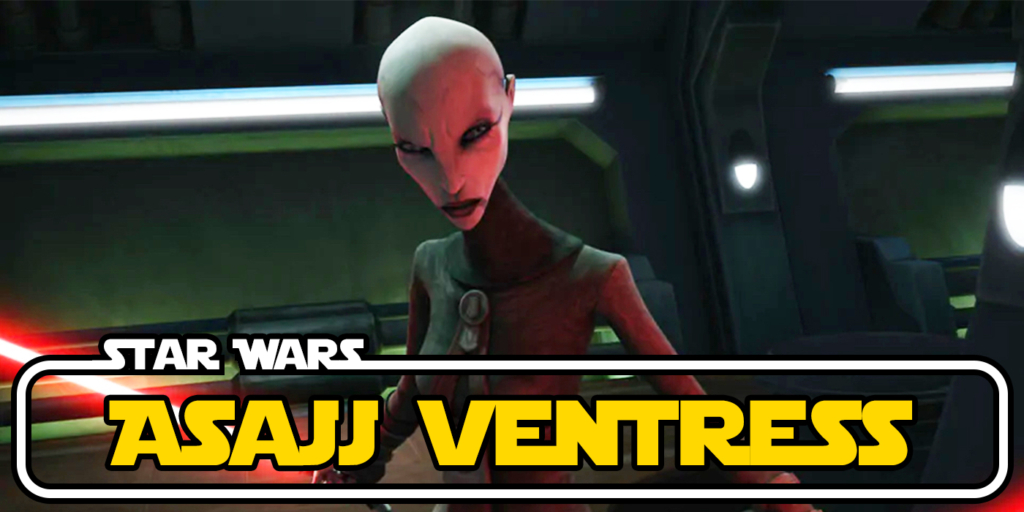Every Russell T. Davies ‘Doctor Who’ Episode Ranked
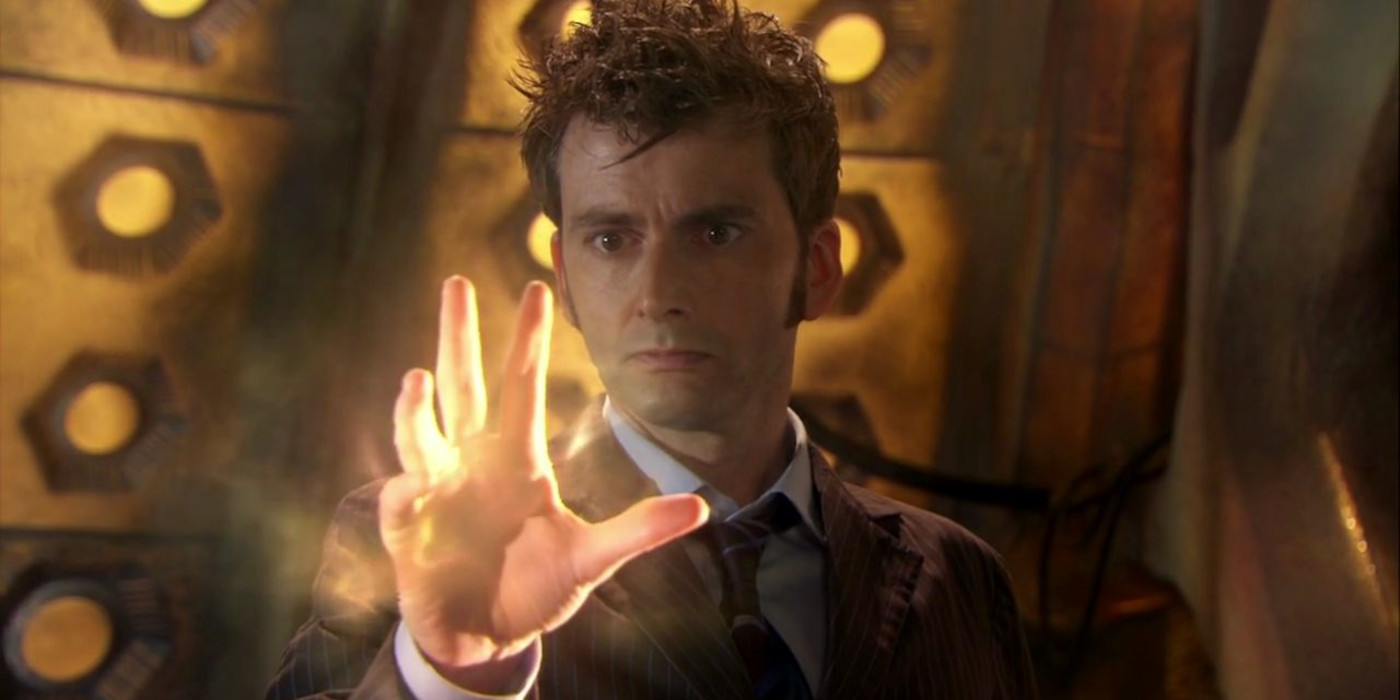
Russell T. Davies is back as Doctor Who‘s showrunner. Let’s revisit his older episodes and decide which of his past stories are the best.
When you think of modern Doctor Who, a lot of names probably spring to mind. But the most important and influential person isn’t any of the actors who play the title role, it’s the guy who brought the show back in the first place–Russell T. Davies.
Davies can write virtually anything. He’s simply one of the most versatile television writers of all time. But he chose to write Doctor Who because it’s the show he grew up on. He was a little kid who once hid behind the sofa as the Daleks rolled onto the screen and he still thrills at the chance to let kids feel that way watching Doctor Who now.
Davies took a break from running the show in the 2010s. But he’s back as showrunner now with new episodes coming out each week. Before we see what new stories he has in store for David Tennant and Ncuti Gatwa, let’s look at the tale of the tape. Technically Davies has written over 30 episodes of Doctor Who so far. But for the sake of this ranking, we’ll combine the two-parters into singular stories.
Which are the best? Which are… not the best? Let’s take a look at the works of Russell T. Davies Phase I.
25. “Love & Monsters”
Look, we all know the moment an RTD ranking begins who’s going to be on the bottom. “Love & Monsters” may not be the worst Doctor Who episode ever, but it is Russell’s worst. It’s the first of the Doctor-lite stories and one of only two to leave the companion largely out of the proceedings.
The story of Elton and LINDA (London Investigation ‘N’ Detective Agency) in the hunt for the Doctor is too silly for words. And, yes, it is essentially an episode driven by an award-winning kid’s monster drawing. But “Love & Monsters” isn’t the worst because of a kid’s drawing–it’s the worst because Peter-Kay-as-the-Absorbaloff is the kind of children’s adventure that talks down to kids.
The adventure also features Doctor and Rose running Scooby-Doo style from an alien. Honestly, that’s actually kind of funny. And the idea that Rose and the Doctor turn up because Elton hurts Jackie Tyler’s feelings is actually great.
However, there’s no way we can list anything lower than the episode which ends with a morbid and sophomoric oral sex joke.
24. “Tooth and Claw”
Rarely will I ding a Doctor Who episode for shoddy special effects. But whereas green bubble wrap as a stand-in for an alien transformation reveals the ingenuity of the classic series, the Mill’s CGI werewolf betrays the opposite. “Tooth and Claw” isn’t even the first appearance of a werewolf in Doctor Who. That honor goes to the seventh Doctor adventure “The Greatest Show in the Galaxy”.
With no real firsts and a poorly rendered, weightless-looking monster, “Tooth and Claw” has little to recommend on the creature end of things. And the Scottish Shaolin Monks are better in theory than they are in execution.
However, on the plus side, this is the episode where David Tennant gets to use his actual accent. And it also enters into the canon the notion that the royal family are all werewolves. In fact, why hasn’t that come back? Justice for Werewolf Monarchs, I say!
Mostly, though, “Tooth and Claw” is known for being the introduction of the Torchwood Institute. But as important as that eventually becomes, the episode itself is neither as funny nor as scary as it thinks it is.
23. “Planet of the Dead”
Towards the end of David Tennant’s run as the Doctor, we got a series of sort of mini-movies. “Planet of the Dead” is by far the least of those adventures. At first, we get an exciting museum heist featuring the Bionic Woman herself, Michelle Ryan. But after that, the remainder of the story gets literally stalled out on a bus in the desert.
The plot, such as it is, revolves around the Doctor trying to get a bus of people back to Earth before they get gobbled up by flying alien stingrays. And while the cast includes both Michelle Ryan and a young Daniel Kaluuya, there’s just not a lot of meat on the bone. Ryan gets the best of it as a sort of Lara Croft-style thief, but even then she’s written as a little too clever and cartoonish.
Mostly, this was Doctor Who making a big deal out of filming in HD for the first time in Dubai. But all you really get is some very lovely sand. And, yes, we also see the beginning of the “he will knock four times” Master story arc. But one piece of exciting continuity does not a good adventure make. Somewhere out there I’m sure there’s a review from the time titled “Planet of the Dead on Arrival”–and that’s a pretty apt description.
22. “The Long Game”
The first series of the new Doctor Who only really misses once and it’s with “The Long Game”. Even then, it’s one of those moments that are weirdly prescient. After all, it’s a story about news as disseminated through individuals’ minds corrupted by faulty data. It’s basically a story about social media.
Because, yes, on paper the idea that news comes from your fellow citizens sounds like an important deconstruction of the imbalance of power in where and how information gets shared. But just like with Twitter, it’s not always clear who starts the proverbial news cycle or how truthful that is.
But really, “The Long Game” is about a weird slug creature and Simon Pegg keeping people stupid and controllable. And the high concept simply does not land. There are terrorists and zombies and also brain windows for some reason.
More than anything, though, the failure comes down to one word: Adam. Adam is essentially a one-off companion who exists to explain why Rose is the most special of them all. And it reads as smug. In fact, it’s probably the least likable the Ninth Doctor and Rose ever get.
21. “Voyage of the Damned”
Russell T. Davies Loves a Christmas adventure. And why not? The Doctor and Christmas are (usually) a great combination. However, there was this one time when the Doctor winds up on the Titanic in space with Kylie Minogue…
“Voyage of the Damned” is Doctor Who‘s attempt at The Poseidon Adventure. The story traps the Doctor on board the Titanic in space as it intentionally hurtles toward the Earth. Like its 1970s influence, the episode features a real cast of thousands including some lottery winners, a mean rich guy, Kylie Minogue as… maid waitress combo (I think), a red and pointy robot, some angel robots, a corrupt boat captain, a robot with a gold tooth, and also this guy named Alonso.
It is, in short, over-stuffed. Every time you start to like someone, they die. And the only character you’re specifically meant to hate survives! The villain, Max, is sort of a caricature of an evil businessman whose golden parachute is going to kill the entire human race. Actually, that part has aged depressingly well. But nothing will ever age well about killing Kylie Minogue—that’s against the law, Russell!
But of course, the best bit of the entire episode is the brief first appearance of Bernard Cribbins as Wilfred Mott—arguably the best companion of the modern series. And, yes, the phrase “allons y, Alonso” also gets spoken by David Tennant in what feels like maybe his hammiest and most fun moment. “Voyage of the Damned” isn’t bad, but we do expect a lot out of our Christmas fun.
20. “New Earth”
Oh, “New Earth”. How close you are to being good. All the pieces are there. On their own, those pieces are marvelous. But put together, the entire thing is less than the sum of its parts. Just like “The End of the World” the newly minted Tenth Doctor first takes Rose to the future. This time it’s a glorious new Earth full of apple grass and hospitals that seemingly can cure everything.
But of course, there’s a catch. And those cool-looking cat nuns (arguably some of the show’s best makeup effects ever) hide a terrible secret. There’s a subspecies of sick humans being used as fodder for the healthy. It’s a creepy concept that unfortunately never quite gets explored sufficiently. Also, Tennant squeaky squawks in rage and it doesn’t instill any fear at all.
Then again, Cassandra returns, swaps bodies with both the Doctor and Rose—and that absolutely rules. It’s fun watching Piper and Tennant take turns going full camp. And in the end, Cassandra even gets a mini redemption of sorts. She still dies, but at least she dies telling her past self that she has value. It’s the nicest death a narcissist could hope for.
19. “Gridlock”
New Earth. Again. This a rare example where the sequel pulls ahead of the original, albeit just barely. What makes Gridlock” edge out “New Earth” is that it feels more honest and more grounded. The Doctor takes Rose to see the upper crust of society, then The Doctor shows Martha the slums.
And there we see an analog for opioid addiction. In fact, in the end, we find out that drug addiction actually ends all life in the idyllic world above. And down below we get more of that lovely cat makeup and the return of a delightful classic villain—the Macra!
It’s all a sort of morality play about the dangers of a caste system. It works, although not as well as I’d like. But what it lacks in social commentary it makes up for with its ending. The Face of Boe, one of Doctor Who‘s most fascinating minor characters (unless he isn’t) tells the Doctor a secret—”You are not alone.” It’s a statement that had me positively buzzing with excitement. Clearly, this meant another Timelord—and we all knew which one it was probably going to be!
Oh, and Martha makes the Doctor tell her about Gallifrey. He’s only restrained at first but ultimately allows himself to remember the beauty of his home and be enveloped in the sadness of losing it. He lets himself be vulnerable with Martha for the first time.
18. “Aliens of London”/”World War Three”
Justice for the Slitheen. I know everyone jokes about how sophomoric the farty aliens are, but I kind of think they’re brilliant. And honestly, they’ve aged very well. After all, there are plenty of mobster-turned-political leaders who are mostly full of hot air in the real world right now! And sometimes it feels as though they want to blow up the world and sell the remaining irradiated chunks for profit.
The other thing that makes “Aliens of London” specifically great is the way the timing plays out. The Doctor accidentally brings Rose back a full year after she first leaves at the end of “Rose”. That’s an entire year for Mickey and Jackie to panic and, frankly, assume Rose is dead. This is the consequence of traveling with the Doctor—you lose part of yourself in the transaction.
If you forget about the farting, honestly this two-parter rules. We meet future Prime Minister Harriet Jones for the first time. The Doctor lies his way out of a jam. And there’s a bit where the Doctor says that the Prime Minister is an alien and nobody believes him. It’s weirdly realistic for a story where giant fart babies try to destroy the Earth for cash.
17. “The End of the World”
Davies has a lot of simple, effective formulas. And in the first series, he sets one of them up straight away: modern-day first, future second, and past third. After all, why have a time machine at all if you aren’t going to use it? And after fighting off Autons smack bang in the middle of London, the Ninth Doctor takes Rose to Platform One—to watch the Earth roast.
“The End of the World” sets up what makes time travel both glorious and terrifying. It’s cool to see the end of the Earth, but it’s also a real reminder of your (and everyone’s) mortality. But that’s the point. Traveling with the Doctor is all about pushing human experience to its limits without losing a sense of respect for yourself or anyone else.
We get an evolution of bigotry in the form of the last “true” human—a bitchy trampoline named Casandra. We also get living trees with whom the Doctor seems to have a romantic relationship. And, of course, we find out that the Doctor is the last of his kind. Davies eradicates the Doctor’s people the Timelords but, at this point, we don’t know why.
A traumatized Doctor gives Rose her first glimpse of time-travel heartbreak–and then they eat chips. Because even though the world will end, today there is hot, fried potato. Not everything is bad news! Also: best use of “Toxic” by Britney Spears ever!
16. “The Next Doctor”
The Doctor meets himself every now and again. That’s the risk you take when you’re a time-traveling immortal with different faces and personalities. Sometimes you don’t even know you’ve met yourself. Sometimes you’re not even right about it.
And that’s sort of the pitch Russell T. Davies presents with “The Next Doctor”: what if the Doctor meets someone who could be another regeneration but isn’t? So you wind up with a version of the Doctor where everything is just slightly wrong. This new Doctor (Jackson Lake) has a companion named Rosalita. He has a TARDIS which is a hot air balloon. And a sonic screwdriver that’s really just a regular screwdriver.
The Cybermen are real enough, though! And there’s a wonderful steampunk quality to them on this occasion. Mostly though, the mystery of Jackson Lake is very well handled. Because in the end, he’s just a man who’s lost his family and, thus, lost himself. And it makes sense to lose oneself in the fantasy of the Doctor’s life. After all, who wouldn’t want to be someone who can beat the monsters and save the world and everyone in it?
Jackson Lake is exactly that kind of hero—he just doesn’t realize it at first. In the end “The Next Doctor” is a lovely parable about what it really means to be the Doctor. Because it’s not about winning. It’s about taking the victories where you can and shining on even when you lose.
15. “The Waters of Mars”
The Doctor sees things from the Master’s point of view. There’s a novel idea. And at this point, the Tenth Doctor is keenly aware that he’s being called to die—something he very much does not want to do.
Then suddenly he finds himself on Mars at one of those fixed points in time. This is a place he cannot be because he cannot change what happens. The Doctor cannot win. Unless, of course, he breaks the rules of the Timelords.
And that’s just what he does. As the Mars mission heads towards calamity, the Doctor changes the course of history and saves the life of Adelaide Brooke—because who cares if that changes history? The Doctor doesn’t want to die and if he can stop Adelaide Brooke from dying he can do anything. Timelord Victorious.
But that’s not how things work, of course. Adelaide Brooke refuses to alter the timeline and takes her own life instead. It’s a moment so bleak that it feels a bit un-Doctor Who.
Really, though, the only flaw of the episode is that the water monsters are scary, but not quite as scary as you want them to be. And the bits with the robot get very silly in a way that messes with the overall tone. Otherwise, though, it’s absolutely brilliant.
14. “The Runaway Bride”
In a word: pockets! For all the fun Doctor Who has thanks to Russell T. Davies, the true comedy potential doesn’t crystalize until Catherine Tate turns up. Donna Noble is the quintessential Tenth Doctor companion. She is his most perfect foil. She doesn’t love him. Sometimes she doesn’t even like him. But the two elevate each other in a way no one else can.
It’s hard to believe, but David Tennant and Catherine Tate hadn’t worked together before this moment. You’d never know it watching them here because their comedic chemistry is off the flipping charts. All the jokes about him being from Mars and the way Donna bemoans her wedding going awry as the Earth itself is threatened betray a comedically human story.
Donna does not trust the Doctor and the Doctor does not trust Donna. And yet by the time the Racnoss Empress turns up in all her giant arachnid glory, our heroes find their rapport. Without Donna, the Doctor would die in the process of brutally murdering the Empress and all her children. It’s a grim moment in the midst of all the hilarity that works incredibly well.
All that being said, the Racnoss Empress herself never quite works and her deadly Christmas star never quite feels scary, funny, or magical. Still, Russell T. Davies found absolute gold with Tate and Tennant that’s clear throughout “The Runaway Bride”.
13. “Partners in Crime”
Russell T Davies really knows how to let the tension build, doesn’t he? The entire opening of “Partners in Crime” is just the Doctor and Donna missing each other. They’re doing the exact same thing, investigating Adipose, just slightly out of sync.
And then Donna sees the Doctor through that weird portal window (why is it there) and the sparks fly. It’s just a few minutes of what has to be completely unscripted pantomime—and it’s the funniest thing I’ve ever seen on Doctor Who.
But the plot is just an excuse to sell toys. No offense, I owned a plushie Adipose myself, so it’s a lovely bit of marketing. But the weightless fad subplot—who cares? And that makes this otherwise wonderful comedy duo episode feel ever so slightly flat.
On the plus side, Donna tells the Doctor she won’t have sex with him in just about the funniest way possible. And then she meets Rose, has no idea she’s met Rose, and then Rose just vanishes!
I’ll say this: I respect an episode with a strong ending. And when Wilfred sees Donna in the TARDIS at the end? Aw, man, that just absolutely warms even the coldest, most unwarmable cockles.
12. “Smith and Jones”
We could talk a lot about all the bad reasons why people did not like Martha Jones at the time, but it’s probably better to sing her praises. Martha Jones is so good in her first outing. “Smith and Jones” is one of those episodes that stays fun no matter how many times you watch it. Hospitals on the moon. Space rhinos as police for hire. And an alien vampire who sucks blood through a bendy straw while her leather daddies watch. “Smith and Jones” has it all!
But, truly, the biggest selling point is this new dynamic between David Tennant and Freema Agyeman. We’re so used to the Doctor playing proverbial footsy with Rose. And then along comes Martha Jones and he’s just too traumatized. Martha doesn’t know it yet, but she’s destined to spend the entire third series being the Doctor’s doctor.
And that’s what Martha does here, too. She saves the Doctor’s life. She’s the only human in that entire hospital capable of taking decisive action. Without Martha, that hospital does not survive. She and the Doctor have an uneasy bond, but that’s kind of what makes it work so well.
11. “Rose”
The episode that starts it all is also easily one of Russell T. Davies’ best stories. Yes, it’s goofy, but it’s goofy with intention. “Rose” sets the mission statement of Doctor Who as family entertainment almost perfectly.
The story, which reintroduces the Doctor, also brings back a classic foe–the Autons. Rose must help the Doctor fight off what are basically shop window dummies from hell. The introduction quickly gives us a sense of danger right from the off with Wilson the electrician already grimly dispatched. There are explosions, anti-plastic, and the use of the London eye as an alien transmitter.
But more than anything, Davies introduces the most critical part of his stories—the family dynamic. We love Rose right away not just because of the Doctor’s fondness for her. We also love Rose because Mickey loves her and Jackie loves her. The classic companions seldom have relationships outside of the Doctor and this domestic element remains a game-changer for the series.
The only criticism is Mickey getting eaten by a burping trash bin. But how can you focus on that when Eccleston’s “turn of the Earth speech” brilliantly tells us everything about his incarnation of the Doctor in about 30 seconds flat?
10. “Boom Town”
Again I say: justice for the Slitheen! In a first series packed with excellent episodes, “Boom Town” still stands out as one of Russell’s strongest. In fact, something you see time and again is that RTD excels most when he has the least to work with from a budget standpoint.
“Boom Town” is all standing sets and outdoor shots. It’s the story where the TARDIS is actually a Police Box. The Doctor, Rose, Mickey, and Captain Jack capture Blon Fel-Fotch Passameer-Day Slitheen and lock her up. And her next destination is her death.
So what we get is one last night of an enemy’s life with the Doctor as her jailer. It’s a story that asks whether or not someone as vile as Blon can be redeemed. And it also asks how heroic the Doctor truly is. After all, doesn’t he just run away rather than ever face consequences?
Yes, it’s a farty alien episode, but it’s the best a farty aliens episode can possibly be. And it turns out a farty alien episode can be extremely good. Plus, this is the first time the term “Bad Wolf” finally gets acknowledged. I remember watching this when it first aired and that moment sent a chill down my spine.
9. “The Christmas Invasion”
The first Christmas episode is easily Russell T. Davies’ best. In fact, it’s probably one of the best first episodes for a new Doctor ever made. And all it takes is for a giant spaceship above Earth to control everyone with B-positive blood like puppets on strings. Oh, and Jackie Tyler almost gets killed by a Christmas tree. That bit’s good too!
New Doctor stories are about redefinition. Who is the Doctor this time? And “The Christmas Invasion” tells us in no uncertain terms who the 10th Doctor is. He’s a man unafraid to swing a sword in his dressing gown. He’ll argue in favor of humanity with a The Lion King quote. Mostly, though, he’ll cut anyone, friend or enemy, to the quick if they cross the line.
David Tennant’s Doctor is charming and dashing to be sure, but “The Christmas Invasion” works best because it also defines him as dangerous. Harriet Jones kills the Sycoraxx as they flee and he unmakes her entire administration with six words: don’t you think she looks tired? It also helps that Tennant and Billie Piper’s chemistry is off the charts.
8. “Utopia”
Oh, man, this is one of those episodes where almost all that matters is the last ten minutes. In fact, the last ten minutes are so good that you almost forget that the rest of the episode is sort of uneventful. It’s not bad, it’s just a bit unpolished.
But of course, it starts with something wonderful which is the return of Captain Jack Harkness, now fully immortal. Jack has an instant rapport with Martha Jones, but the far more interesting relationship is with the Tenth Doctor. After all, they should get along—but they don’t exactly. It turns out that the Doctor abandoned Jack on purpose way back in “The Parting of the Ways” because he knew Jack had become immortal. The TARDIS doesn’t like that and neither does the Doctor.
It’s a very intriguing dynamic. The Doctor likes Jack, but he doesn’t really play well with other ageless immortal types. Speaking of which: Professor Yana. Or, more importantly, Derek Jacobi, whose performance as Yana (and, later, The Master) absolutely explodes off the screen. He goes from sweet Father Christmas to borderline Satanic so fast but so believable it’s honestly incredible. And then John Simm? Beautiful!
The only real flaw here is the Futurekind. Who are they? Why are their teeth sharp? Honestly, who cares? But they are the deadly danger facing Martha, Jack, and the Doctor at the episode’s end. And they kind of pay off in the next two episodes. Speaking of which…
7. “The Sound of Drums”/”Last of the Timelords”
You know you’ve got something special when John Simm and David Tennant have a phone call and it’s the horniest thing ever. And that’s just one scene!
This is one of those two-parters that doesn’t make any sense but also it’s hard to care for the most part. One of the strongest parts of the episode is how the Master mirrors the Doctor’s shtick. The Doctor has a companion. The Master has a companion. But, of course, the Master abuses his wife Lucy. And he doesn’t use the TARDIS to travel anywhere (because he can’t). Instead, the Master uses it to bring a mutated, disgusting version of humanity from the future to kill their own past.
Wipe out one-tenth of the population. That’s basically where “The Sound of Drums” ends. The Master kills a tenth of all humanity. And then a year passes. Martha has to spend that year all alone as the Doctor’s regenerations are stolen and her family is enslaved.
The resolution’s flaws have been talked to death. The Doctor glowing and de-aging because humans believe in him like he’s Tinker Bell has always felt silly. Really my beef is that it robs Martha of being the one to truly defeat the Master. After all, he enslaved her family—it kind of feels like revenge is hers.
But the Doctor’s reaction to the Master’s death is a perfect tragedy and for that alone this season three ender will always be one of Russell T Davies’ strongest stories. And Martha Jones gets the best departure. She’s too good for the Doctor and she knows it.
6. “The End of Time”
Controversial opinion: The End of Time is firmly middle of the pack when it comes to the big, Russell T. Davies finales. It has some incredible scenes, but there’s a lot about it that doesn’t really work.
I’m just going to say it: the Timelords’ return is weird. And the Master’s return is even more weird. And good grief do I hate the Master saying the phrase,”There is no human race, there is only the Master race”. Words have meanings and historical contexts. This is one of those times where Davies should’ve left an idea in the drafts.
All that said: GOD DAMN are Wilf and the Doctor dynamite together. Every scene between the pair of them is just Doctor Who firing on every cylinder it’s got. The stuff about their respective mortality is so good. Wilf basically being the Doctor’s dad leaves me an absolute emotional wreck. And then when the Doctor sacrifices himself to save Wilf? Forget it. It’s game over. I cannot cope.
But can we talk about the Doctor’s reward? Because a lot of it works. The stuff that does not work, though? Yikes. I’m especially thinking about putting Martha and Mickey together. Wow! They really just married the two Black people and called it a day. Not a great look!
On the other hand: Verity Newman. “Was she happy in the end?” Holy wow! I have never seen a sadder smile IN MY LIFE. But also “I don’t want to go” has never worked and will never work don’t @ me.
5. “The Stolen Earth”/”Journey’s End”
The everything and the kitchen sink approach is sort of the Russell T. Davies special. After all, he’s the showrunner and no one’s going to tell him no. This is arguably never more evident than it is at the close of season 4. Every companion returns. The Daleks come back. Davros comes back. We see the Judoon again at the much-ballyhooed Shadow Proclamation.
Jackie and Mickey get to blow up some Daleks! Sarah Jane and Captain Jack team up! Martha Jones nearly destroys the entire planet just to save the universe! Harriet Jones makes her triumphant return (and sacrifice)! And none of that even touches Rose’s return–or the Doctor’s surprise regeneration!
Really the only catch to this two-parter is the Doctor Donna. Everything about that resolves just a bit wrong. Rose gets her own half-human version of the Doctor in the alternate universe—which feels like a cheat. And Donna’s human mind can’t retain the Timelord genius so the Doctor has to erase all her memories of their adventures. And that has always felt wrong. Thank goodness Donna is back at the end of 2023—she deserves some justice.
4. “Army of Ghosts”/”Doomsday”
It’s pretty early on that the new Doctor Who discovers its biggest challenge—writing off companions. After all, why would Rose Tyler ever want to leave this gorgeous man who can take her anywhere and makes her feel like she’s the most important human in all of creation?
And this is just about as good an answer as you can hope for, honestly. After all, Cybermen AND Daleks? There’s no way that works out with a happy ending, does it? But first, there’s a bit of fun to be had. The Doctor and Rose have to work out what exactly these “ghosts” are. We get our formal introduction to Torchwood Mark One. There are scads of human hubris gone awry.
Then, just when you think you’ve seen it all, the Daleks show up and the man to save the day is none other than Mickey Smith! At long last, Mickey gets to be the hero.
There’s just so much to love here. Daleks and Cybermen reading each other to filth. Jackie falls in love with her alternate universe husband Pete. And, of course, Rose’s farewell. Or, more exactly, the Doctor fails to tell Rose how he feels about her before it’s too late. Not since Buffy plunged a sword into Angel in the Buffy the Vampire Slayer season two finale “Becoming Part 2” has my heart been so effectively ripped out of my still-beating chest by a TV show.
3. “Bad Wolf”/”The Parting of the Ways”
To this day I cannot wrap my head around the fact that Eccleston was unhappy with Russell T. Davies, Phil Collinson, and Julie Gardner while filming this first series. And it’s never more mindboggling than in the series one finale.
“Bad Wolf” is this brilliantly macabre takedown of unscripted television. It’s a story that basically asks us: how close are we to a reality show that ends when all but one person dies? It’s Squid Game before Squid Game. But the best part of that part of the story is that it can turn from hilarious to haunting on a dime. The Anne-droid on The Weakest Link is a hoot right up until it “murders” Rose.
It’s virtually impossible to sum these episodes up. But the Doctor’s unflappable conviction to save Rose and Rose’s unflappable conviction to save the Doctor are the best parts of this two-parter.
The Daleks filleting the corpses of humanity to create a new, self-loathing Dalek race is suitably creepy. The Dalek Emperor as a false deity adds a terrifying new dimension to the Daleks. And Jack kissing Rose and the Doctor in the same romantic way is one of the most important moments in TV history.
But Nine saving Rose and then Rose saving him back is just fantastic. And the regeneration scene is equally fantastic. If anyone asks you what Doctor Who is, just show them this story.
2. “Midnight”
We’d had Doctor-Lite episodes before, but never a companion-lite episode. And then Russell T. Davies asked a very simple question: what does the Doctor do when he’s alone? Answer: he loses. Without a companion to chime in with support, the Doctor just looks daft—and that’s at best. In “Midnight” he’s seen as something far worse—the villain. And then worse than that, he becomes expendable.
But Russell T. Davies is smart because he betrays none of it at the start. Yes, clearly something is going to go wrong on a diamond planet called Midnight, but you don’t get the sense that the Doctor is going to straight up lose.
And then an alien gets aboard their tiny little bus. It takes over one of the passengers and starts to mimic everyone else aboard. Word by word. Syllable by syllable. It learns. And then it hones in on the Doctor. It stops mimicking and starts anticipating. And then it steals the Doctor’s voice and takes away his control. It aims to see him thrown out the airlock–and it very nearly happens.
The Doctor never gets that close to losing and it’s harrowing watching it happen. But the best bit is that it’s the cheapest episode. It’s one set. No big monsters. Catherine Tate filmed two scenes. It’s simple and effective and it proves that Russell T. Davies is at his best when there’s no budget at all.
1. “Turn Left”
“Blink” will probably always be the quintessential Doctor-lite episode. But that’s not because it’s the best Doctor Who episode—it’s just the best Doctor Who episode to show someone who’s never seen Doctor Who before. “Turn Left” is that episode’s equal opposite number. It’s the Russell T. Davies episode that asks the question “what if Donna and the Doctor never meet?”
And the shocking answer is that the Doctor dies during the events of “Runaway Bride”. No Donna means no one to stop the Doctor from sacrificing himself while fighting the Racnoss. And that means no one to stop the Adipose. That means someone dies stopping the Sontarans. Ditto for the Space Titanic. The world doesn’t end, but you find yourself thinking it would be better if it had.
There is no more harrowing scene in the history of Doctor Who than when Wilf watches his Italian housemates put on trucks to go to labor camps. “It’s happening again”. On my life, Russell T. Davies never upset me the way he did at that moment—but he got it just right. Another holocaust? That is exactly what would happen.
And the wild thing is we haven’t even talked about Donna and Rose! The two of them, the most uneasy of allies, work together in a way that is so triumphant and so sad. Because Donna is going to die. Rose is going to be locked away in that parallel world all over again. The victory is they save the Doctor, they save everyone else, but they can’t quite save themselves.
“Turn Left” is just a perfect episode of television, period.
That’s our ranking. By all means, yell at us. Tell us we’re the worst. Share your own ranking, too!

